




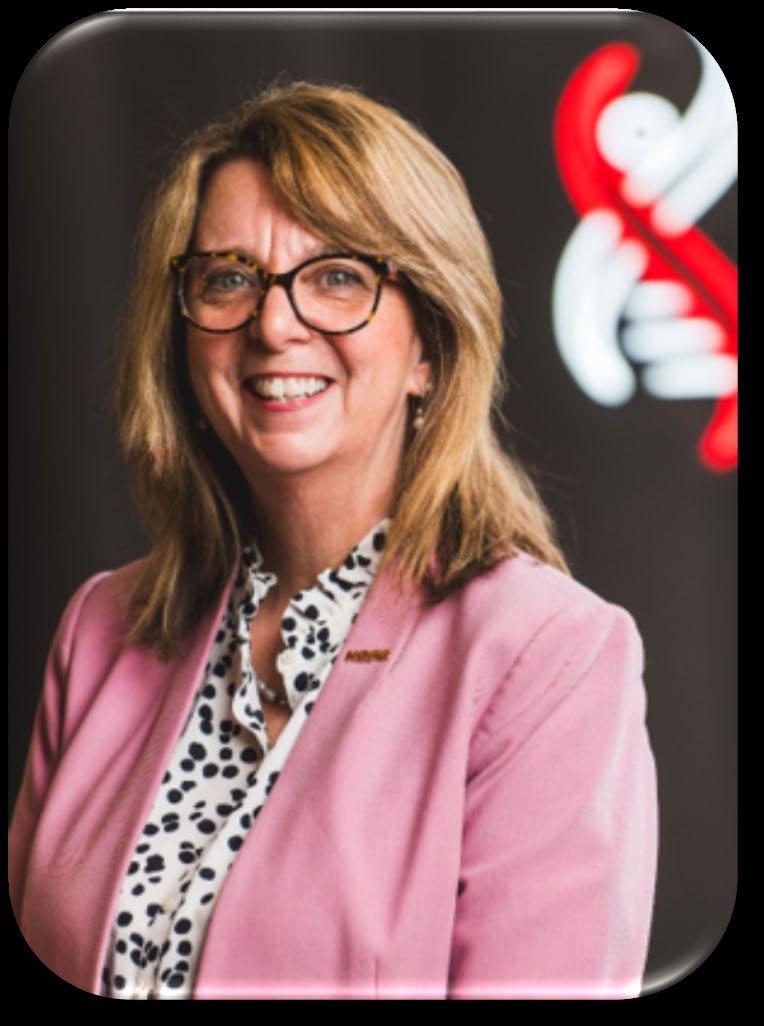

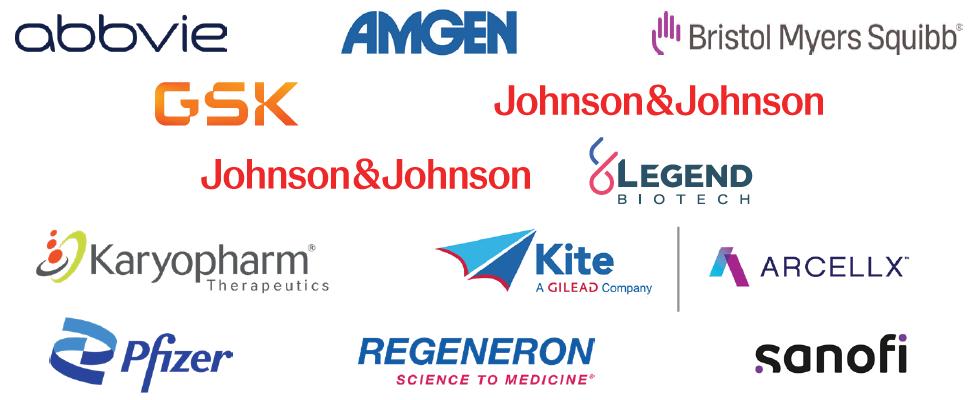




Please use this QR code for Saturday’s Evaluation!



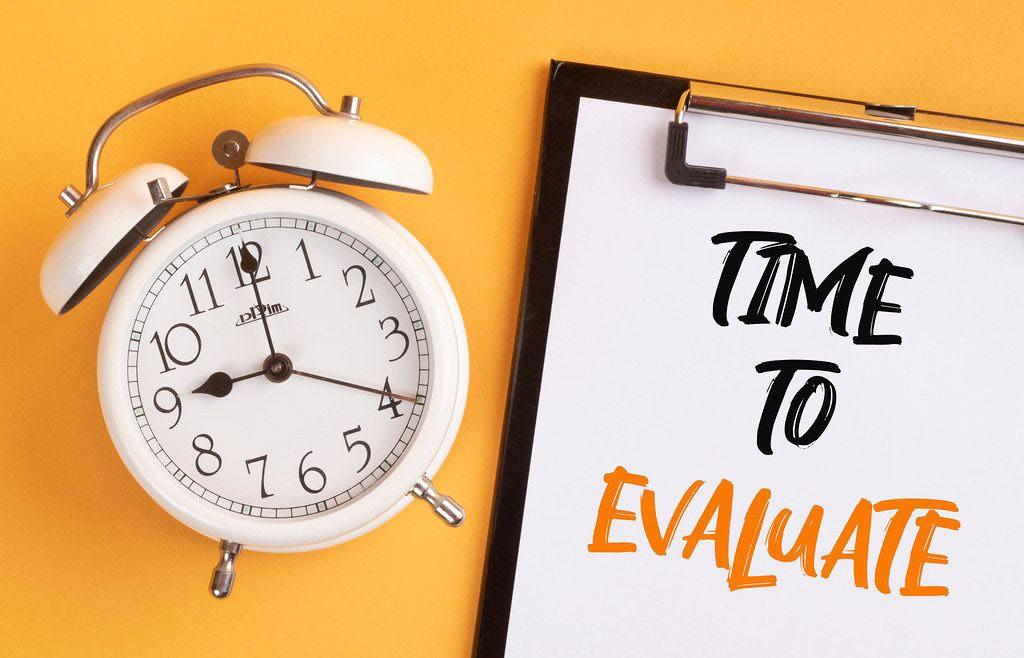

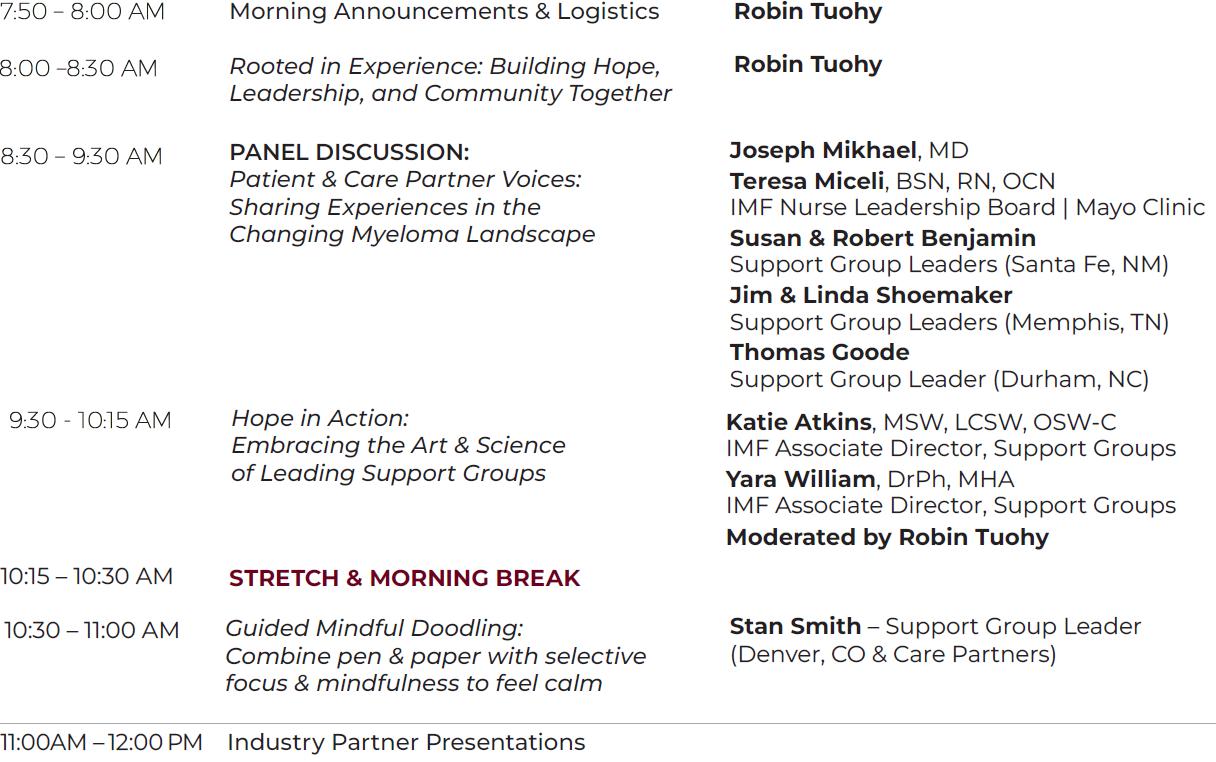

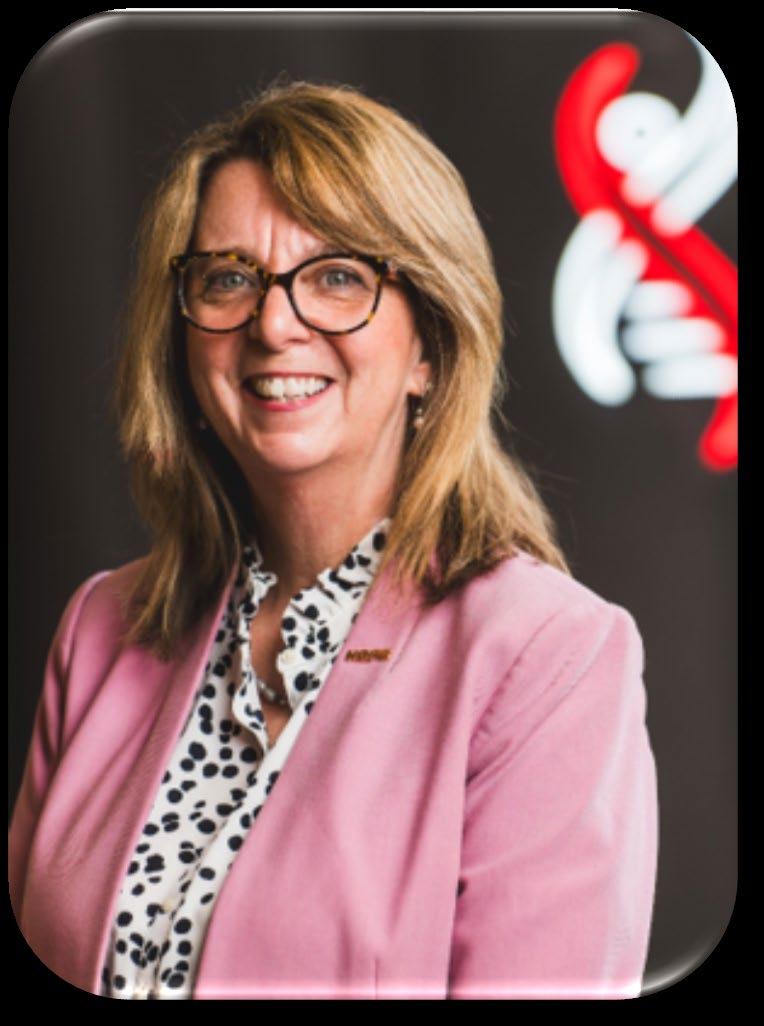

Your IMF Support Group Team
The IMF supports leaders & groups
The Strength of our IMF CoMMunity
“I just heard the words…cancer…myeloma...”
A cancer diagnosis can feel like the ground has shifted beneath you. The fear.
The confusion.
The sleepless nights filled with questions.
You may feel overwhelmed, isolated, even numb.

You are not alone in feeling that way.
Every patient’s journey is unique, but no one should walk it alone.

Since its inception in 1990, the IMF has led the way in establishing, supporting, and growing myeloma-specific support groups.
What began as small gatherings around kitchen tables has evolved into a nationwide network of over 150 volunteer-led myeloma specific groups.
Throughout this journey, our focus has remained steadfast: to empower groups with trusted resources, expert education, and a strong sense of coMMunity.
Support groups are a core pillar of the IMF. We are proud to stand alongside you in providing meaningful, consistent and compassionate support to those impacted by myeloma.
Together, we are turning hope into action — one meeting, one conversation, one connection at a time.
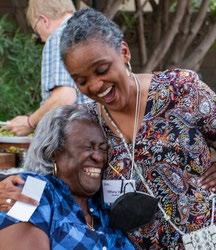

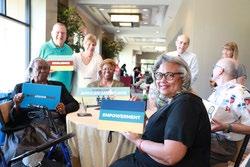

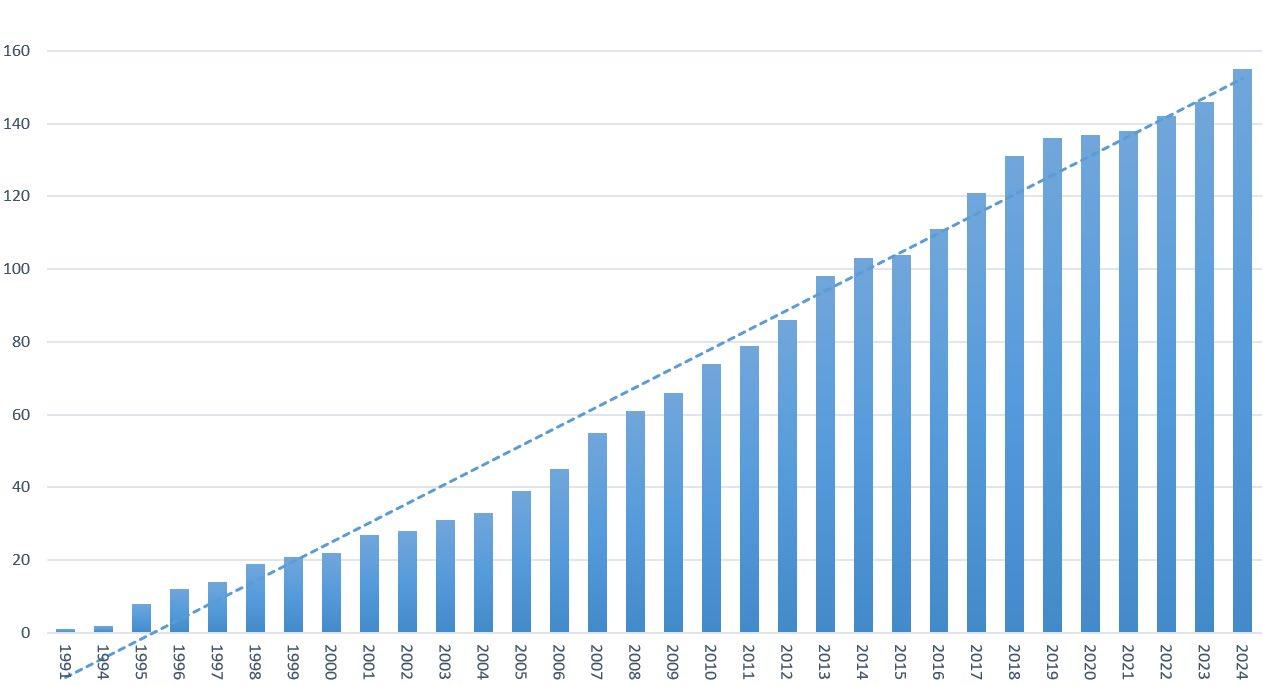

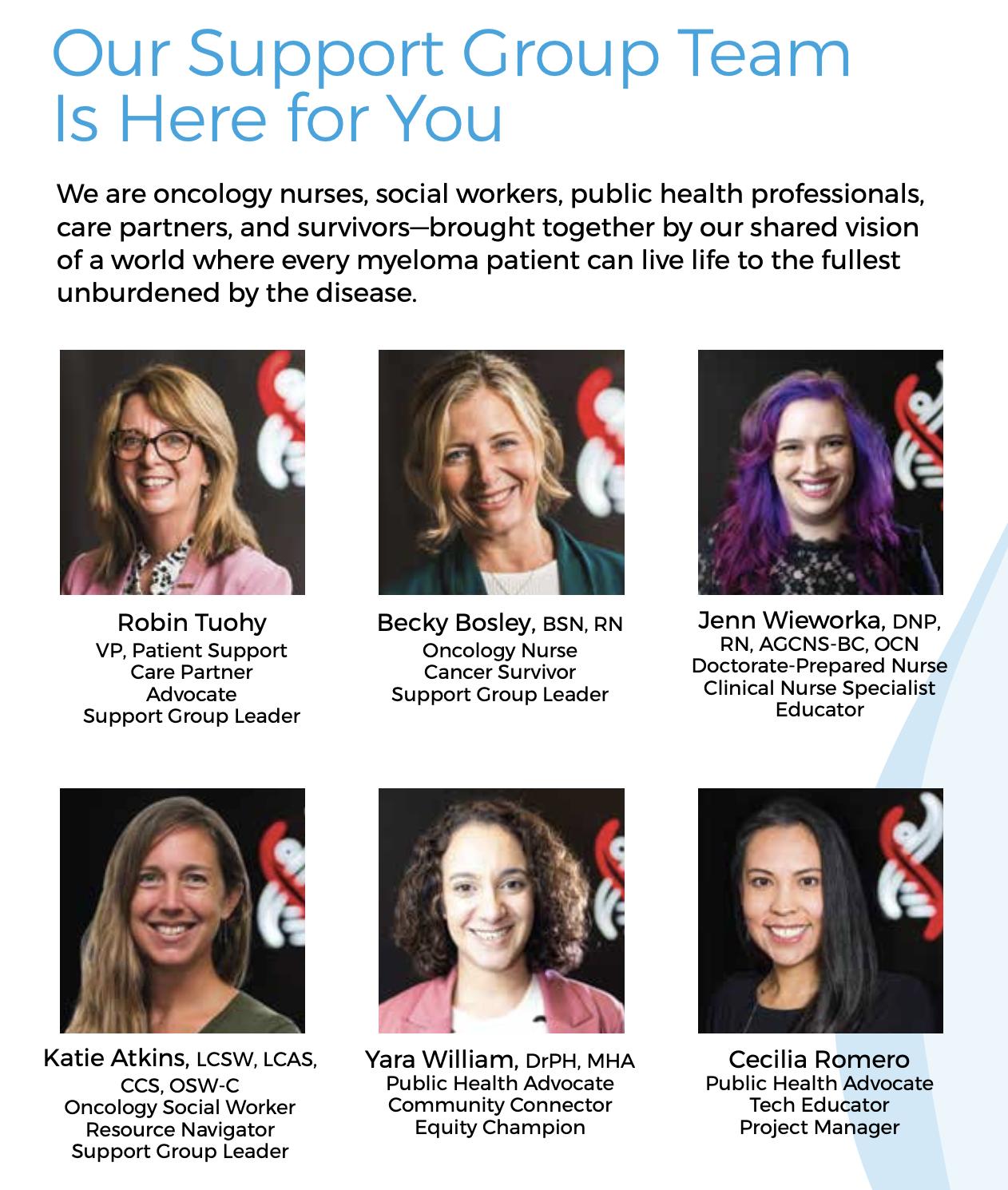
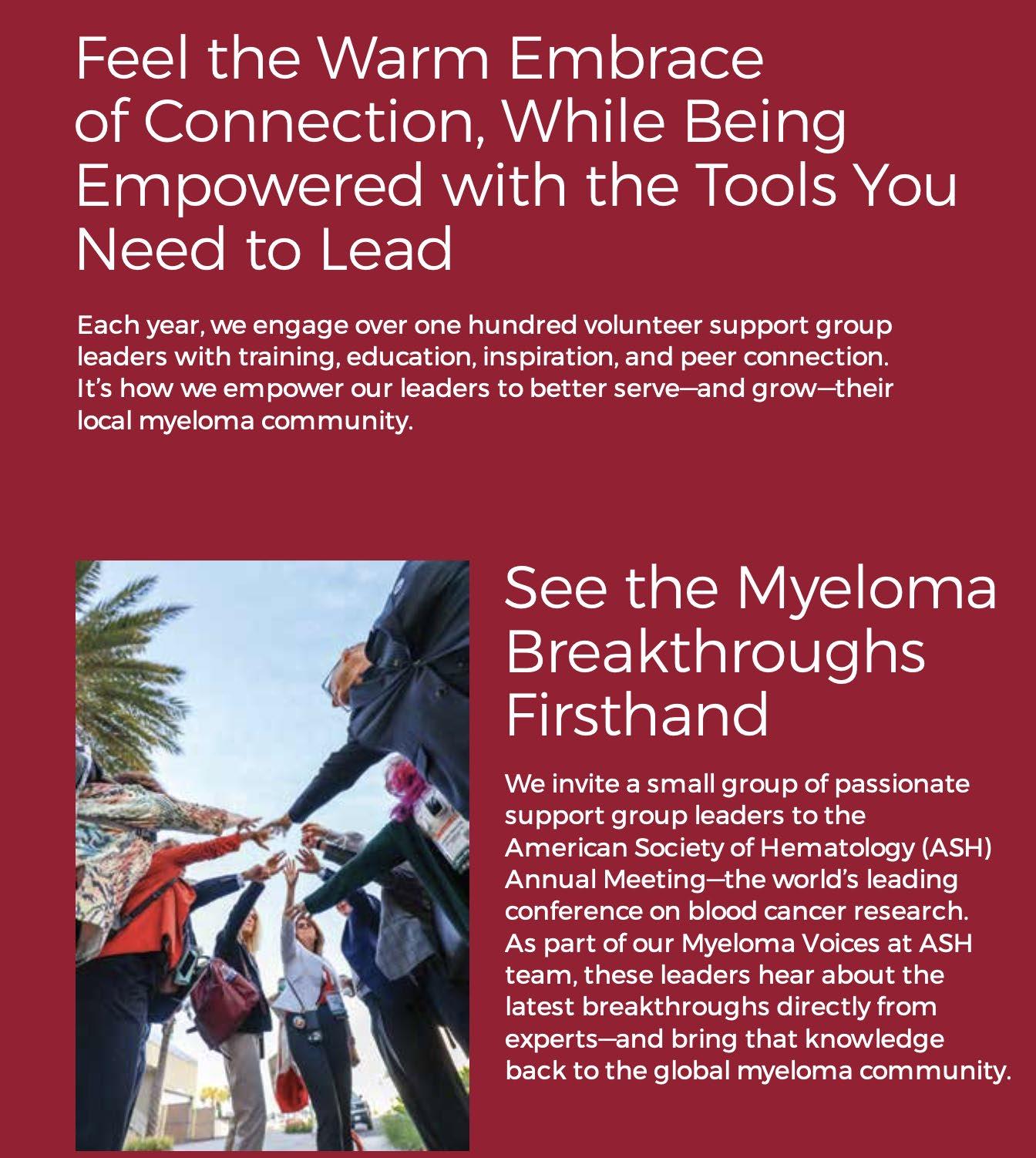

Your IMF Support Group Team is more than a group of professionals — we are nurses, social workers, public health advocates, survivors, and care partners
Together, we bring decades of experience, deep compassion, and a steadfast belief in
Together, your Team offers an unmatched depth of clinical knowledge, personal insight, and supportive care. We don’t just serve the myeloma community—wearepartofit.
Whether you’re looking for resources, emotional support, group leadership guidance, or simply someone who understands, we’re here.
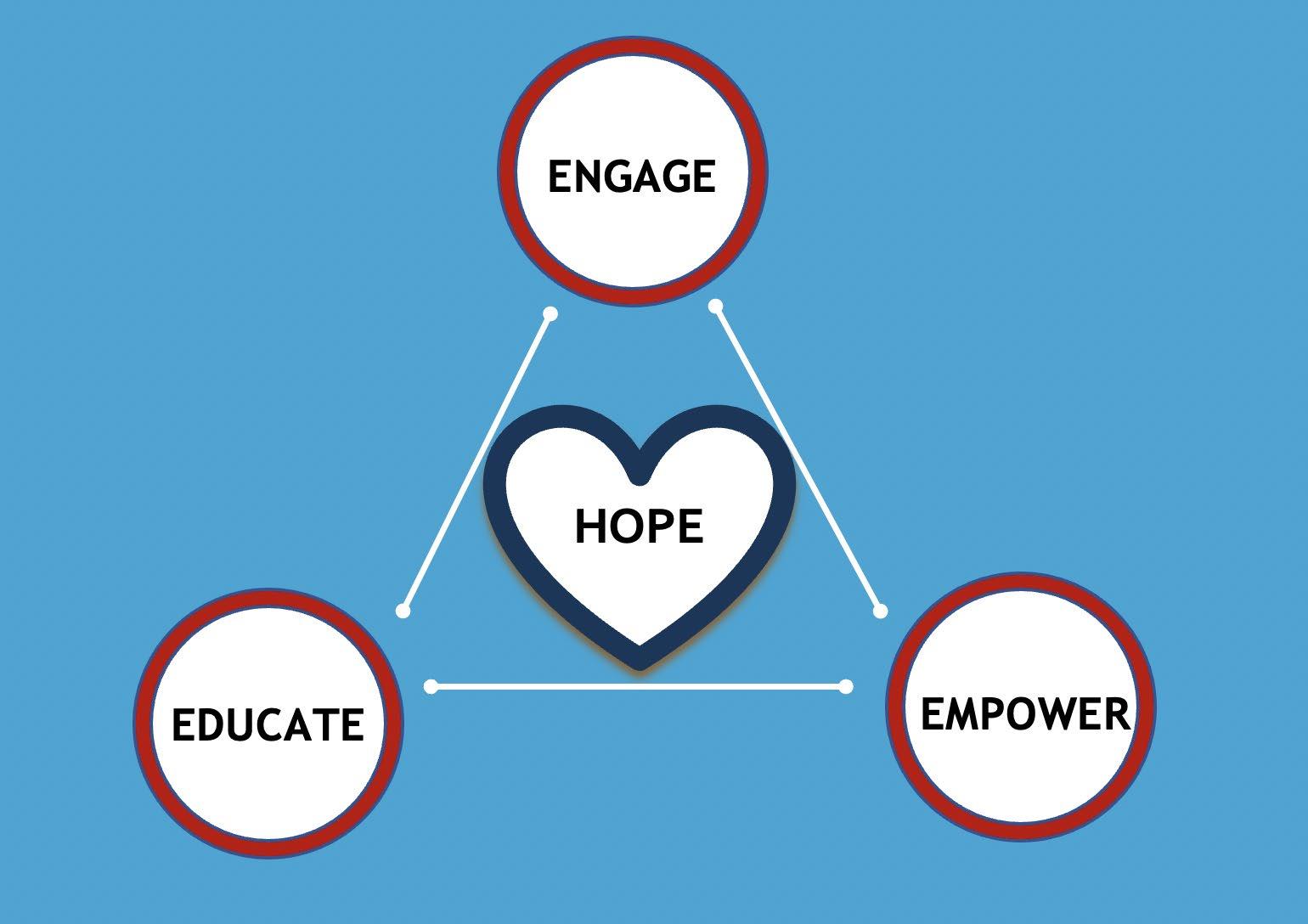
We
are united in our passion:
To ensure that no one faces myeloma alone
Becky has been an oncology nurse since 2006, and for the last eight years, has primarily focused on myeloma. Since 2018, she has led the MidAtlantic Myeloma Support Group and co-leads the Living with High-Risk Myeloma virtual special interest group, which she founded in 2023.
Passionate about empowering patients with education, she leverages her oncology nursing expertise to support myeloma patients and their care partners.
As a breast and ovarian cancer survivor, she brings a deeply personal understanding of the challenges faced by those diagnosed with cancer.
“Having volunteered with the IMF for several years prior to coming on staff allowed me to see a glimpse into the passion of every single person on staff . I felt the same passion while working with the myeloma coMMunity . The longevity and impact of the IMF is so inspiring in itself and I wanted to be a part of continuing that legacy . Patients know that they can count on the IMF for support and I am proud to contribute . ”


Cecilia has more than 10 years of experience in project management and is passionate about keeping projects, programs and initiatives running smoothly through effective processes and procedures.
Her background has been in been in higher education with a focus on improving the health and wellbeing in the communities we serve.
She enjoys working with such a passionate team focused on improving the quality of life of myeloma patients while working toward prevention and a cure.
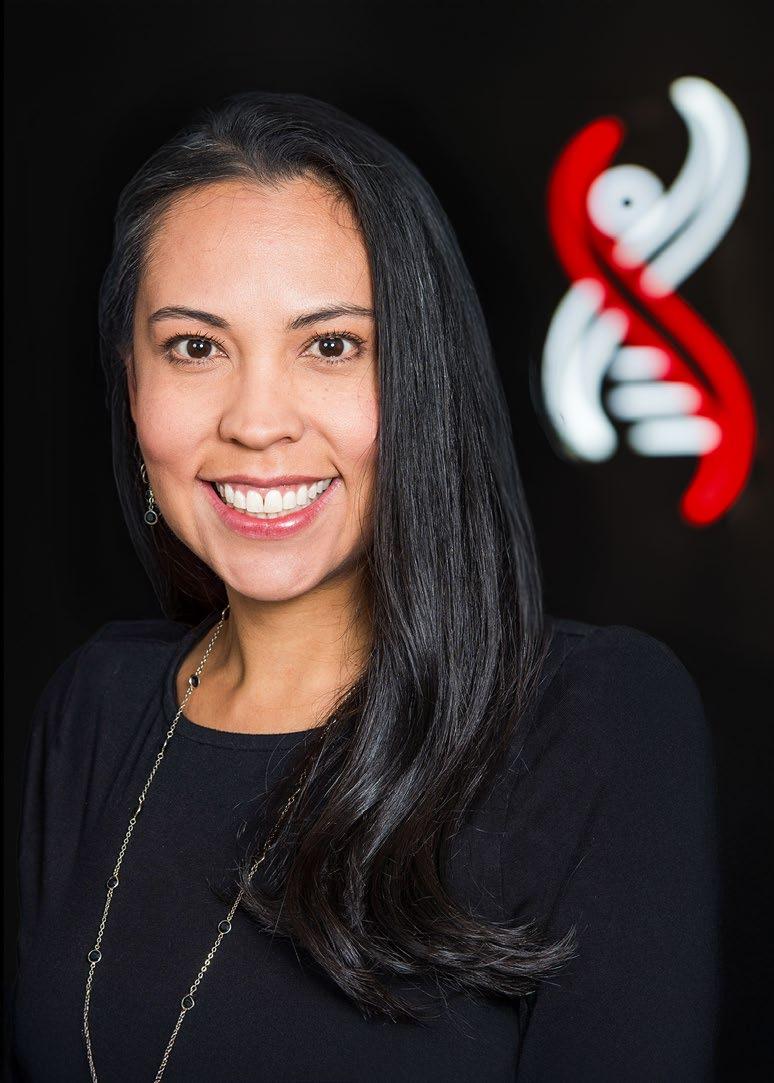
With over a decade of experience in the oncology field, Jenn is passionate about improving patient outcomes and reducing health disparities. Her journey started in inpatient oncology (2012-2017), where she gained hands-on experience in providing compassionate care to patients facing life-changing diagnoses. From 2017 to 2024, she practiced as a Clinical Nurse Specialist (AGCNS-BC) in radiation oncology, where she streamlined processes and improving patient experiences through process improvement and health literacy initiatives.
As a proud Oncology Certified Nurse (OCN), her work is centered on education, patient advocacy, and making complex medical concepts more accessible to patients. Jenn's goal is always to meet patients where they are, creating a supportive and empathetic environment where they can feel informed and empowered throughout their treatment journey. Now, with a Doctorate in Nursing Practice, Jenn is dedicated to advancing evidence-based practices and continuing to champion the role of nurses in shaping the future of oncology care.
“I’mdrivenbythebeliefthateverypatientdeservesthebestmedicalcareandsupportto navigatetheirhealthjourneywithconfidence.Havingwitnessedtheimpactofcanceronmy lovedones,Iunderstandtheneedforclearcommunicationthatempowerspatientsintheir care.Beingattheforefrontofscienceandconstantlylearninghelpsmestaycommittedto thelatestadvancementsinoncologycare.Istrivetomakeameaningfulimpactbyimproving processesandpolicies,creatinganenvironmentwherepatientsfeelsupportedateverystep.
I’mdedicatedtohelpingpeoplethroughsomeofthemostchallengingmomentsintheir liveswiththeknowledge,empathy,anddedicationtheydeserve.”
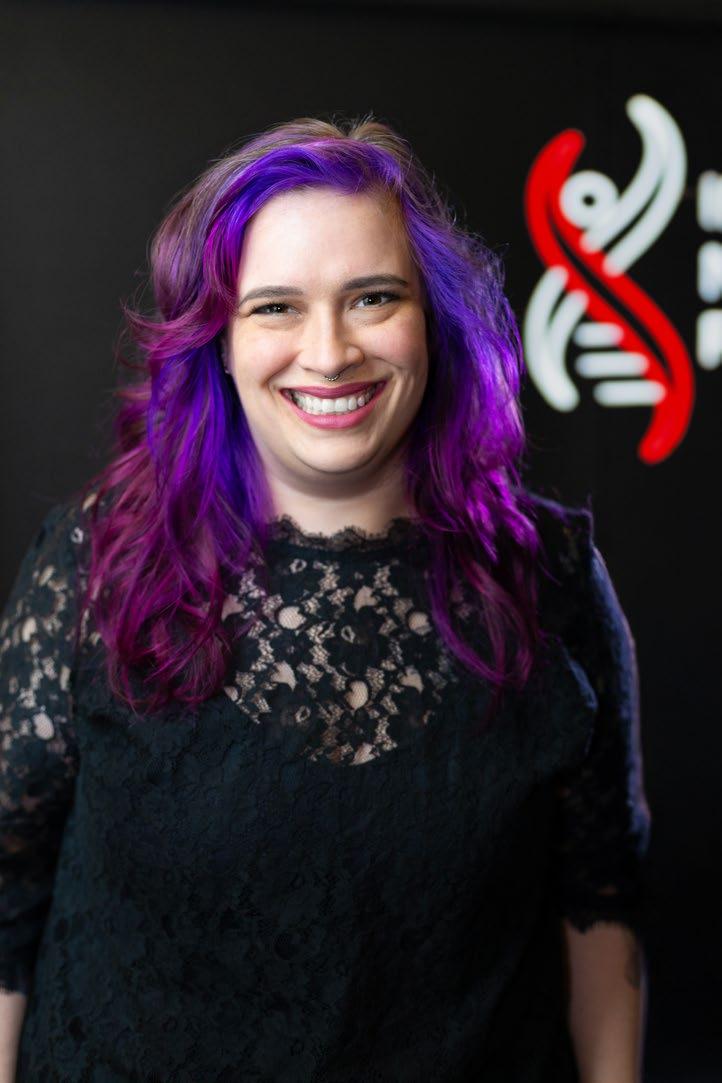

Yara has a background in public health and health administration, with experience in nonprofit, government, and university settings.
She is passionate about health equity, community engagement, and patient advocacy. Her work has focused on bridging the gap between the community and health and social services.
In her current role, she strives to break down barriers to resources, making sure every patient and care partner feels supported. Through education and connection, she helps empower individuals and strengthen support networks.
“Nooneshouldhavetofacemyelomaalone.Toooften,patientsandfamiliesstruggle— notbecauseresourcesdon’texist,butbecausethey’rehardtofindoraccess. Ibelievein thepowerofcommunity,inlistening,andinmakingsureeveryonefeelsseenand valued.”
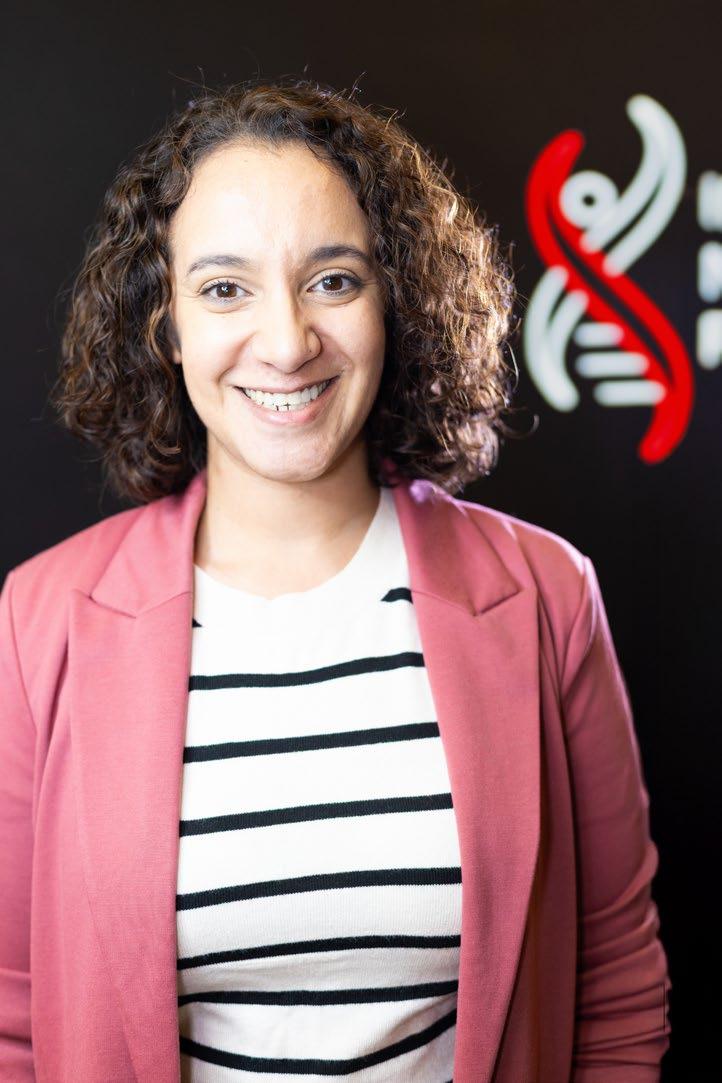

Katie has been working as a medical social worker for the past 10 years, finding a niche in oncology social work 6 years ago. She most recently worked in an outpatient clinic, serving in the primary role of patient and family counselor and support group facilitator.
Katie values the opportunity to walk alongside patients as they face cancer and the challenges that come with it, educate the community about available resources, and advocate for patients facing barriers to care. Providing emotional and psychosocial support to group leaders and members is a top priority for Katie.
As a Licensed Clinical Social Worker (LCSW) and Certified Oncology Social Worker (OSW-C), Katie is dedicated to advocating for the rights and needs of cancer patients and their families. She is committed to empowering individuals to navigate the healthcare system and access the resources they need to live their best lives. She is passionate about forming strong relationships with the individuals she works with and helping them find value and fulfilment in each day. With warmth, empathy, and humor, Katie connects with others and feels honored to support patients throughout their journey with a life-changing illness.
“Ivaluepersonalrelationshipsandwelcometheopportunitytogettounderstand others.Iamthrilledtobepartofanorganizationthatempowerspatientsand communitiestogetthebestavailabletreatmentformultiplemyeloma.Icaredeeply aboutothersandhopetoseeeveryonegetthehealthcaretheyneedanddeserve.”
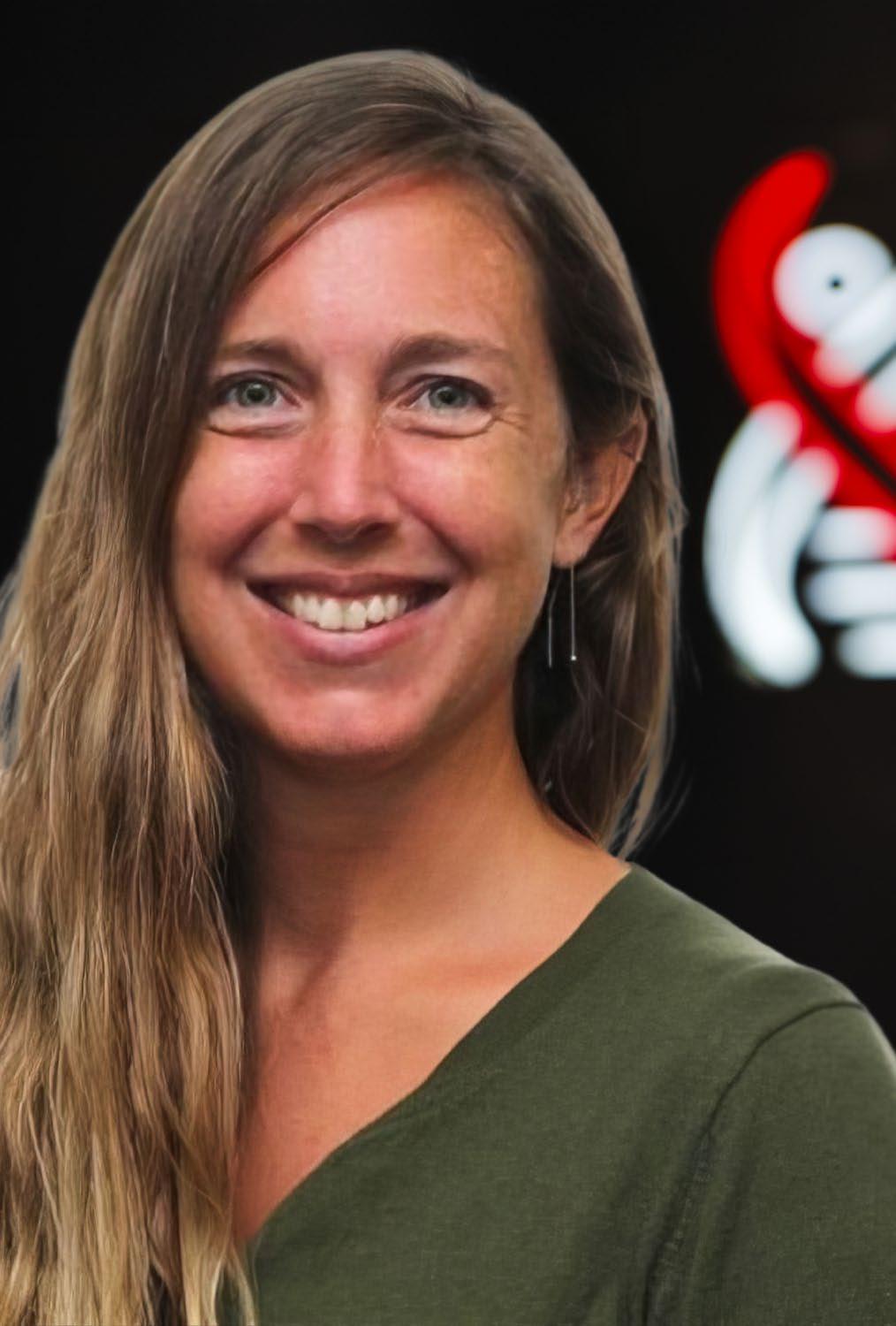
Robin has been a passionate and dedicated advocate in the myeloma community for 25 years. Her journey began in 2000 when her husband was diagnosed with myeloma at the age of 36. This personal experience motivated her to join the International Myeloma Foundation (IMF) in 2005, where she focuses on supporting patients, care partners, and expanding the IMF’s network of myeloma support groups.
As Vice President, Patient Support, Robin leads the IMF’s Support Group Team, providing educational resources and guidance to over 150 local and special interest support groups across the U.S. She plays a key role in IMF cornerstone programs, such as Patient & Family Seminars, Myeloma Community Workshops, Support Group Leaders Summit, Myeloma Voices at ASH, and Living Well webinars all designed to provide critical information and support to those impacted by myeloma. Internationally, Robin is involved in the IMF’s Global Myeloma Action Network, helping advocate for the global myeloma community.
“My Why is rooted in a deeply personal understanding of myeloma and a profound compassion forpatients and their families—shaped bothbymy own experience as a care partner andmy professional commitment to the cause. Everystep ofmy journeyhas been guided by a singular mission: to educate, engage, and empower the myeloma community . Mypurpose is clear: to ensure that no one faces themyelomajourney alone . I am honored to contribute to the IMF’s visionof ‘a world whereevery myelomapatient can livelifeto thefullest,unburdenedbythedisease . ’ ”
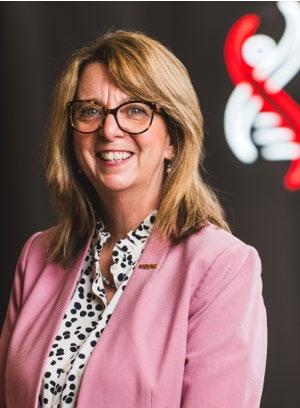


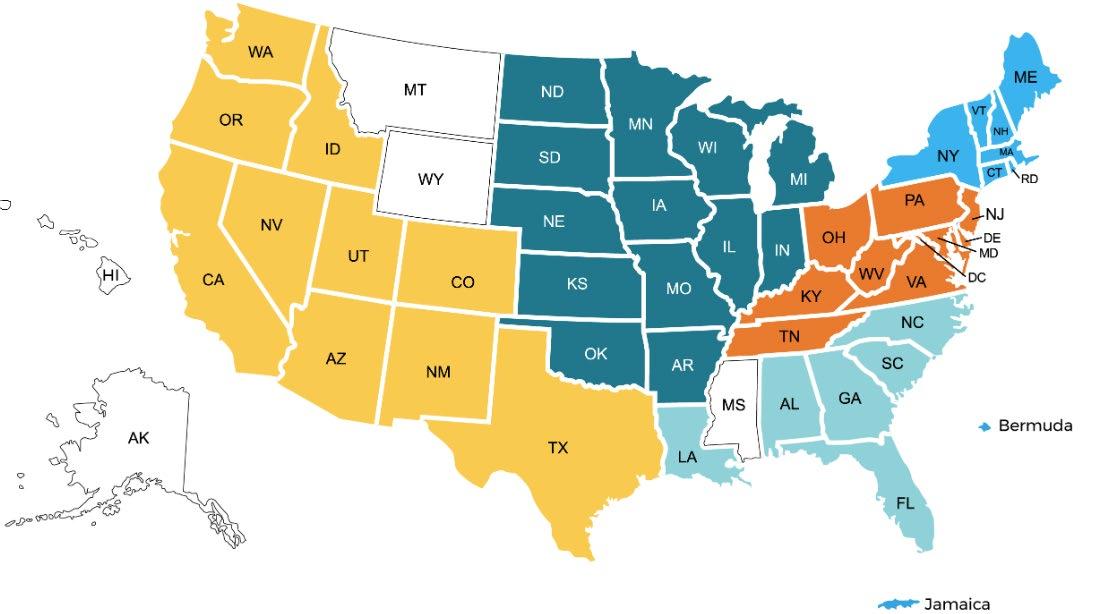
Special interest groups are designed as a supplemental support for specific populations of patients, in addition to their local Support Groups
MM Families
Founded in 2021
For patients & care partners with young children
Las Voces de Mieloma
Founded in 2022
For Spanish speaking patients & care partners
Living Solo & Strong
Founded in 2022
For patients without a care partner

Click here for more info
Smolder Bolder
Founded in 2023
For smoldering myeloma patients & care partners
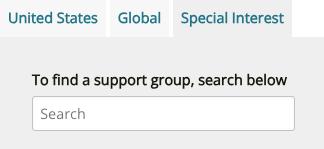
Veterans Only
Founded in 2025
For those who served our country
High Risk Multiple Myeloma
Founded in 2023
For high-risk myeloma patients & care partners
Care Partners Only
Founded in 2024
For myeloma care partners only
Support Group Flyer
Support Group Outreach Card
Outreach with e-blasts to coMMunity
Provide direction & ongoing guidance to start & sustain a group
In-person & virtual presentations to groups with IMF updates & resources
Create & host support group website
Create & host support group email
Promote group on IMF website
Promote group on social media
IMF publications – virtual & print

Annual Support Group Leaders Summit Myeloma Voices at ASH Free Zoom licenses for group meetings
Technology support
Support Group Leader Toolkit App
Quarterly Support Group Leader meetings with IMF Staff
Monthly Support Group Leader Newsletter
IMF Nurse Leadership Board presentations
Pharmaceutical company virtual presentations
IMF Patient & Family Seminars
IMF Myeloma Community Workshops
Myeloma ACTION Month programs


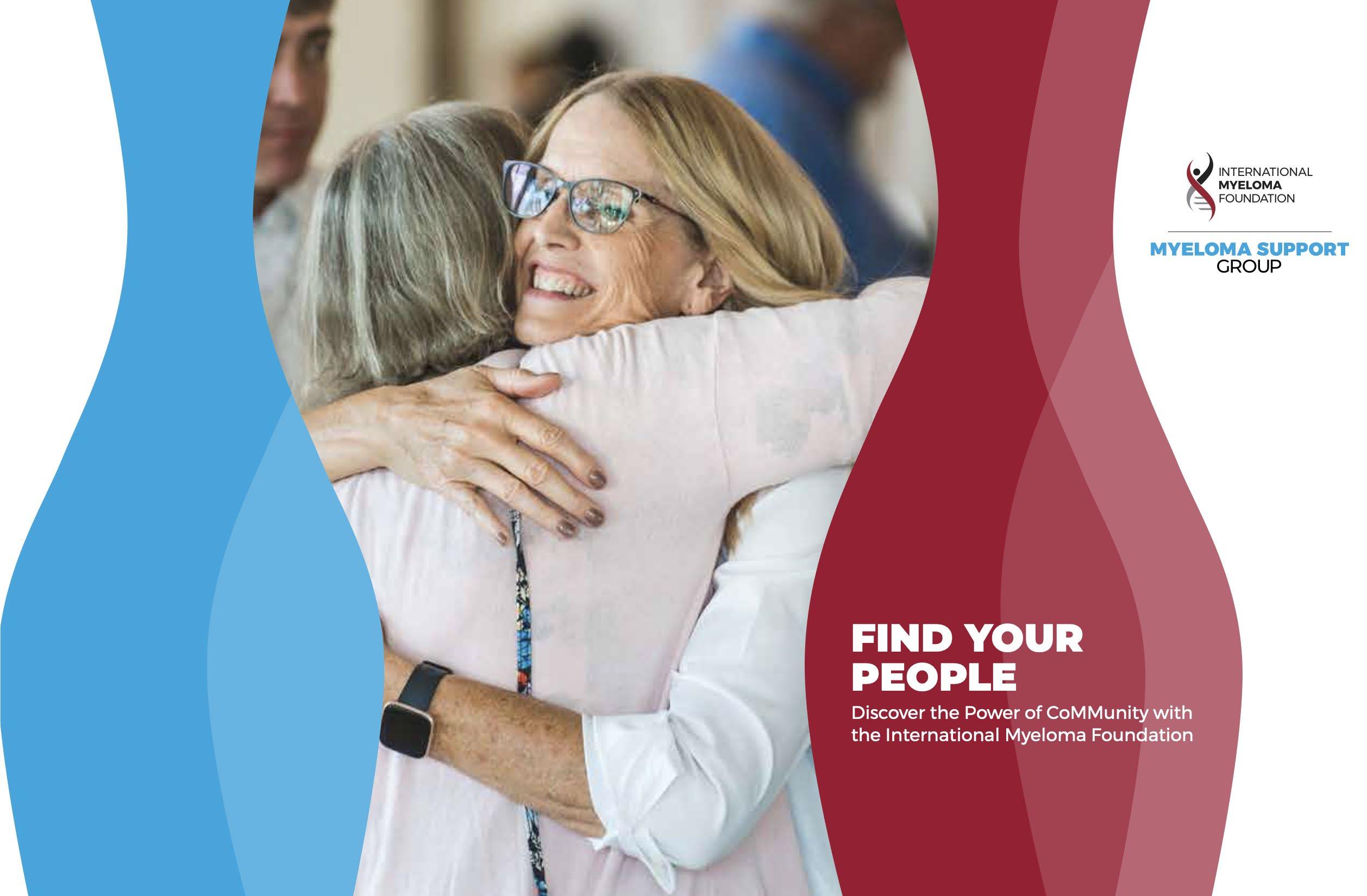
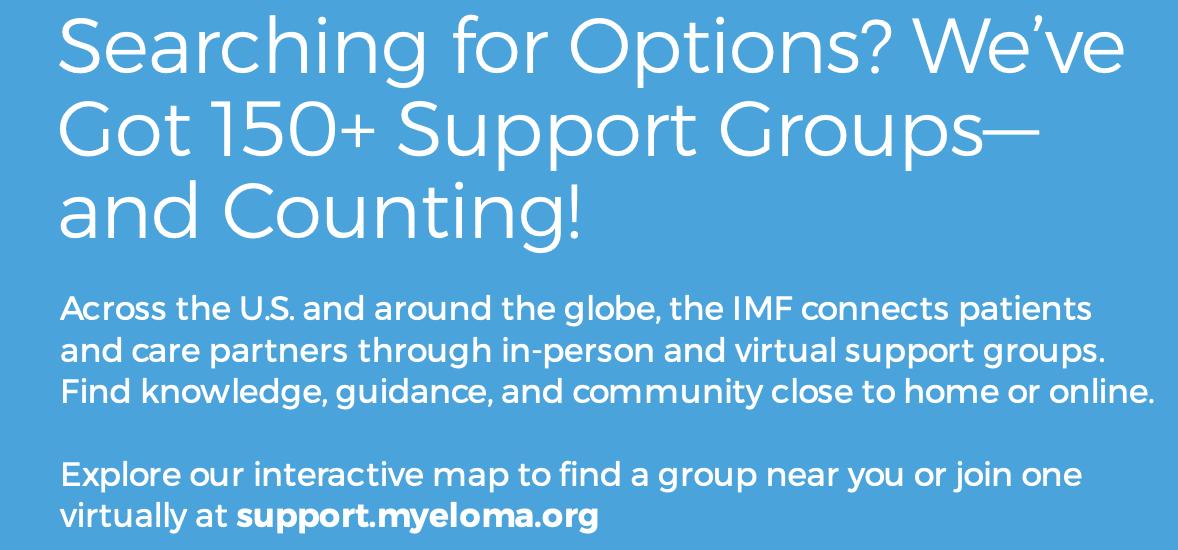

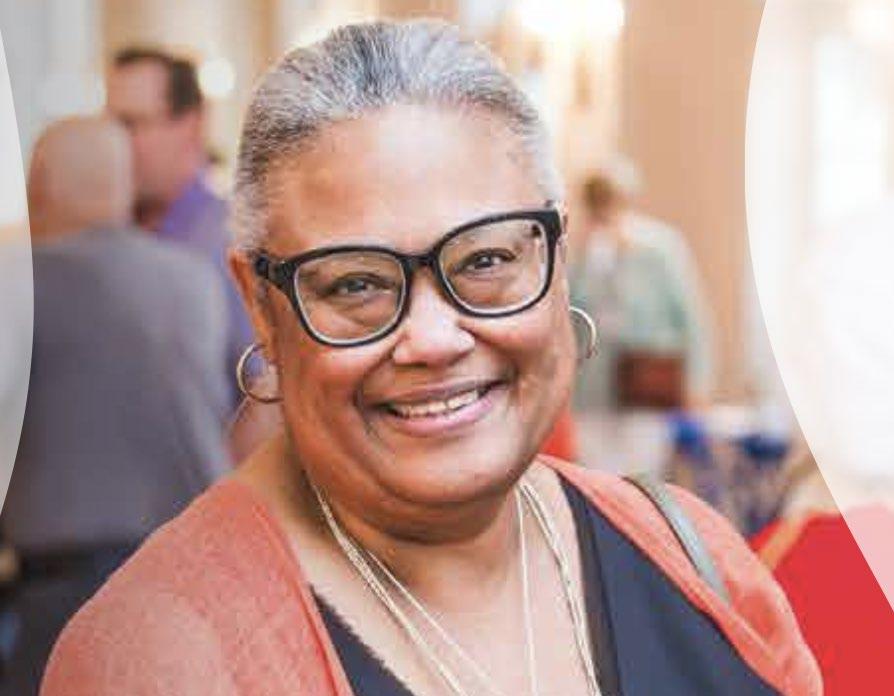
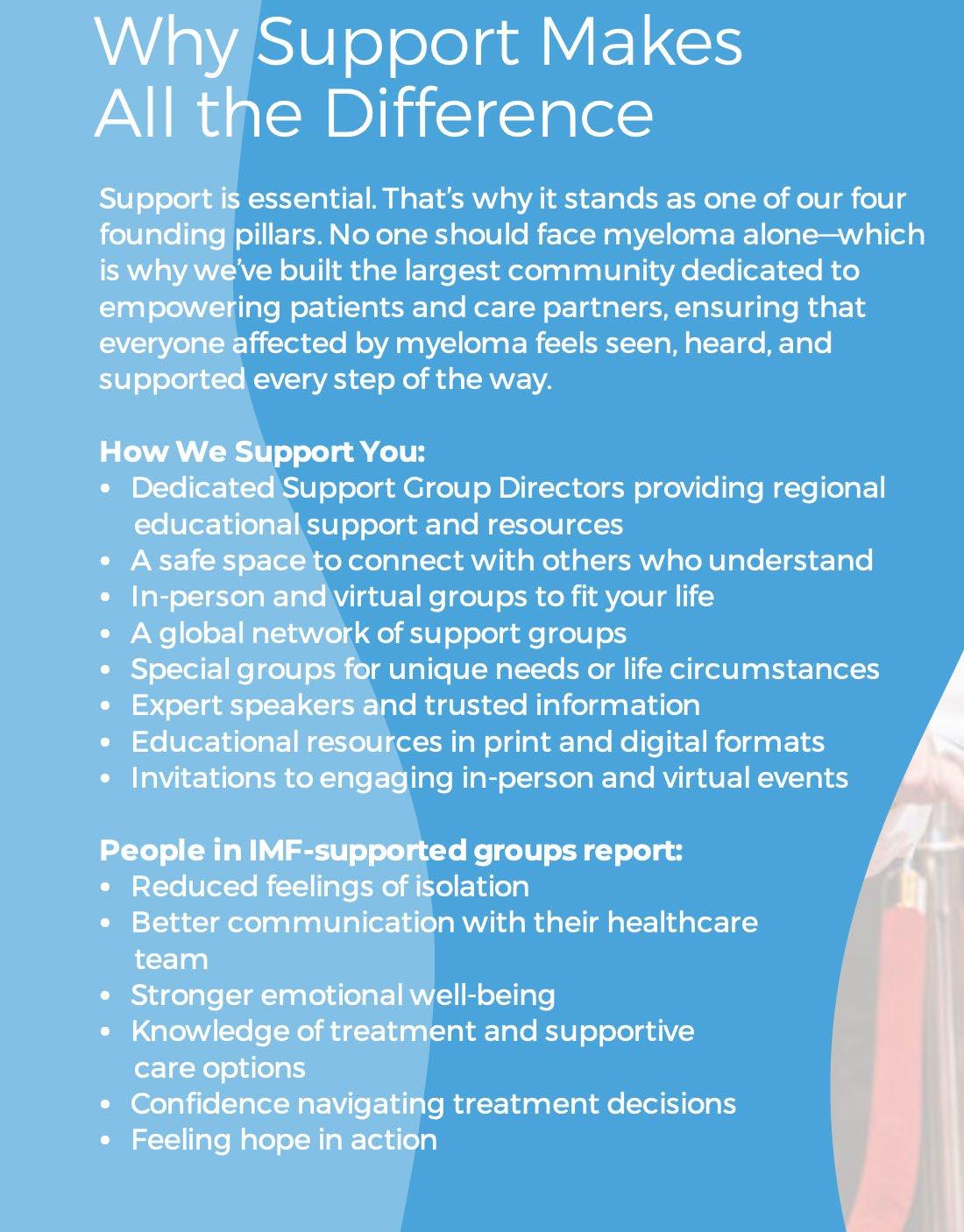


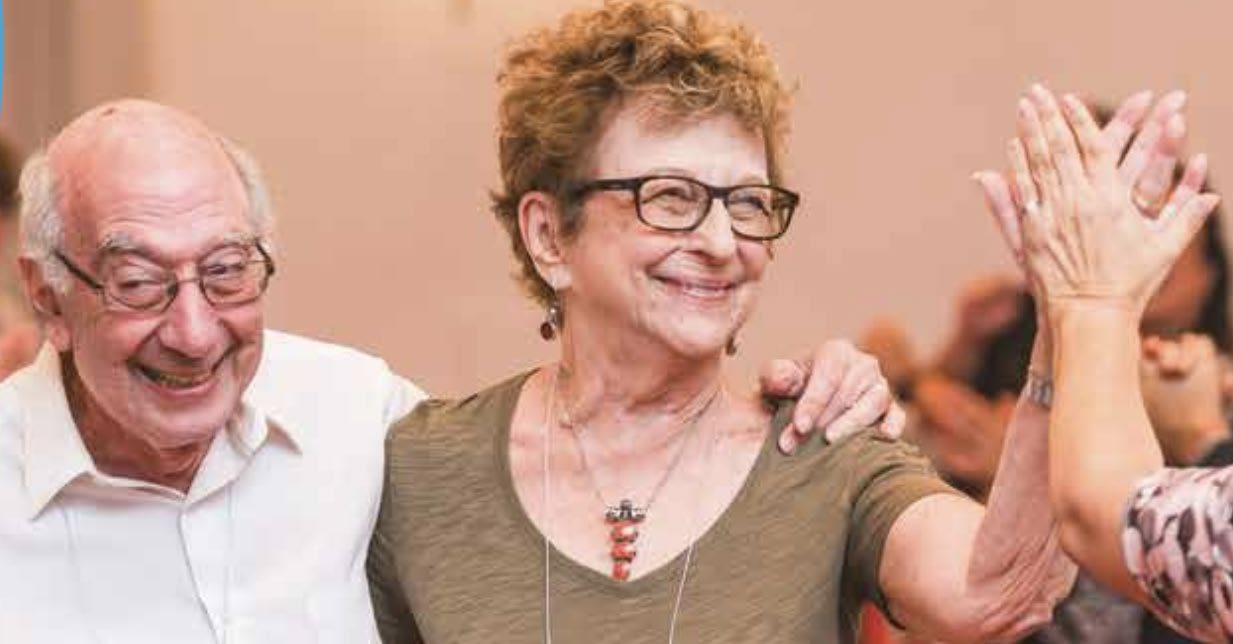



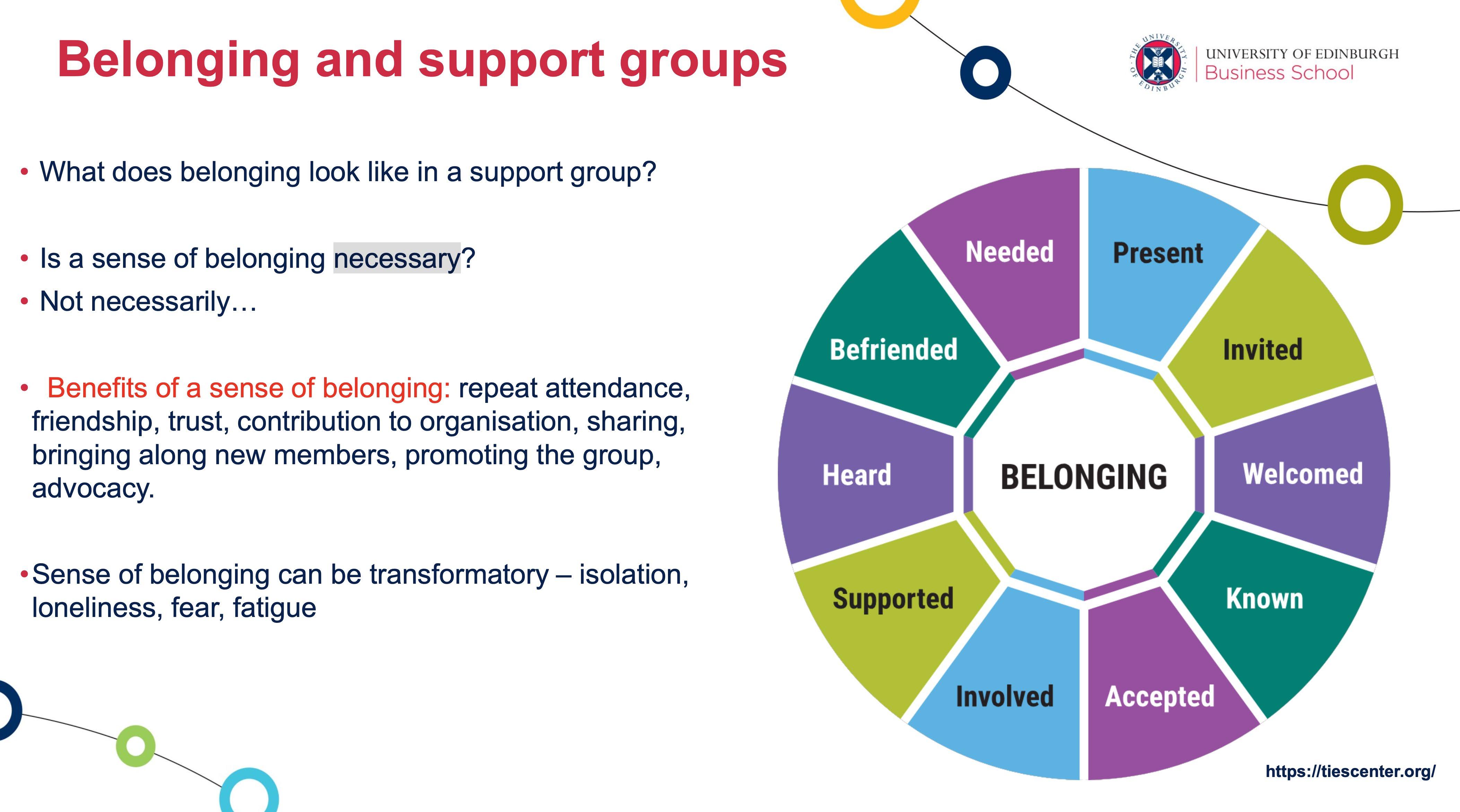
• As a leader, what part of the Belonging Wheel speaks most to you today?
• Does the IMF help you to feel valued, connected, included, hopeful, etc?
• How do you think these words resonate with your group members in the local coMMunity you serve?
Group Meeting Idea:
• Use this as a journaling prompt or discussion guide.
• Use this as you plan for and facilitate your meetings
• Use it on your group's website.
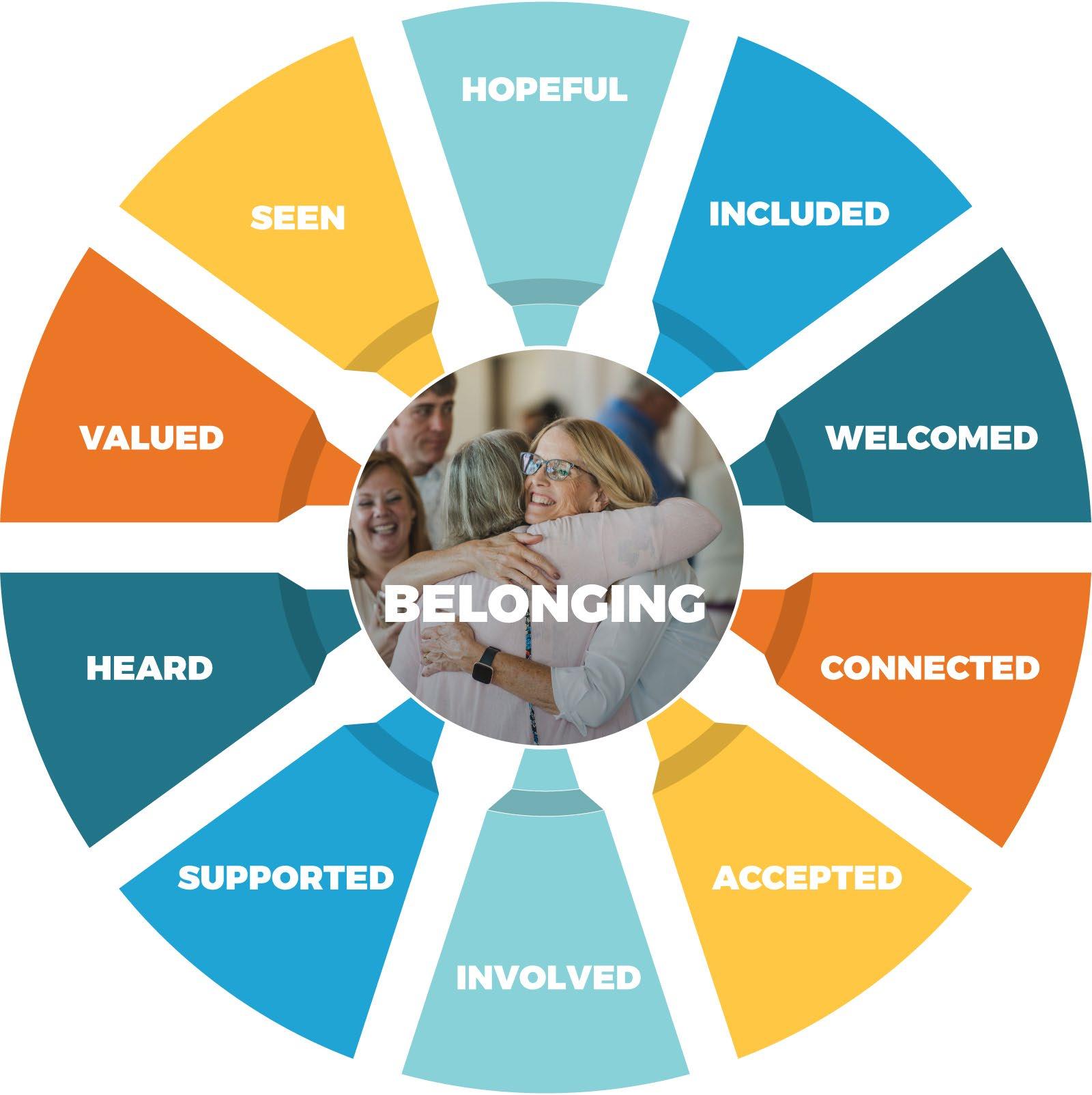


•Thousands of myeloma patients, caregivers, advocates, and researchers form a powerful, informed, and passionate network.
•Every story shared, every question asked, and every voice raised helps build resilience, knowledge, and hope.

•Peer-to-peer support has transformed lives emotionally, mentally, and practically.
•Shared experiences reduce isolation and create bonds that fuel courage.

•Patients have driven research priorities, clinical trial access, and policy reform.
•Myeloma leaders have become trusted partners in healthcare systems and advocacy platforms.

Sunday: you will hear more about your "Yes" to leadership
•It doesn’t mean being perfect. It means being present, passionate, and committed to lifting those we serve.


Army of Empowered, Engaged & Educated!
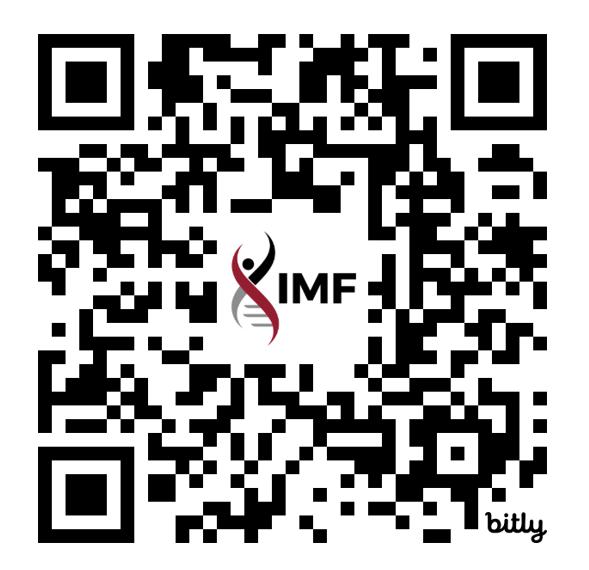



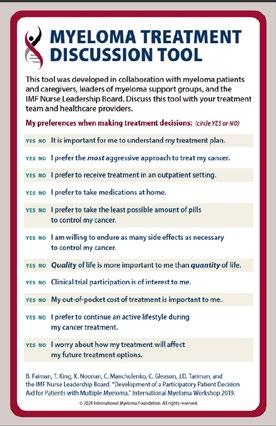
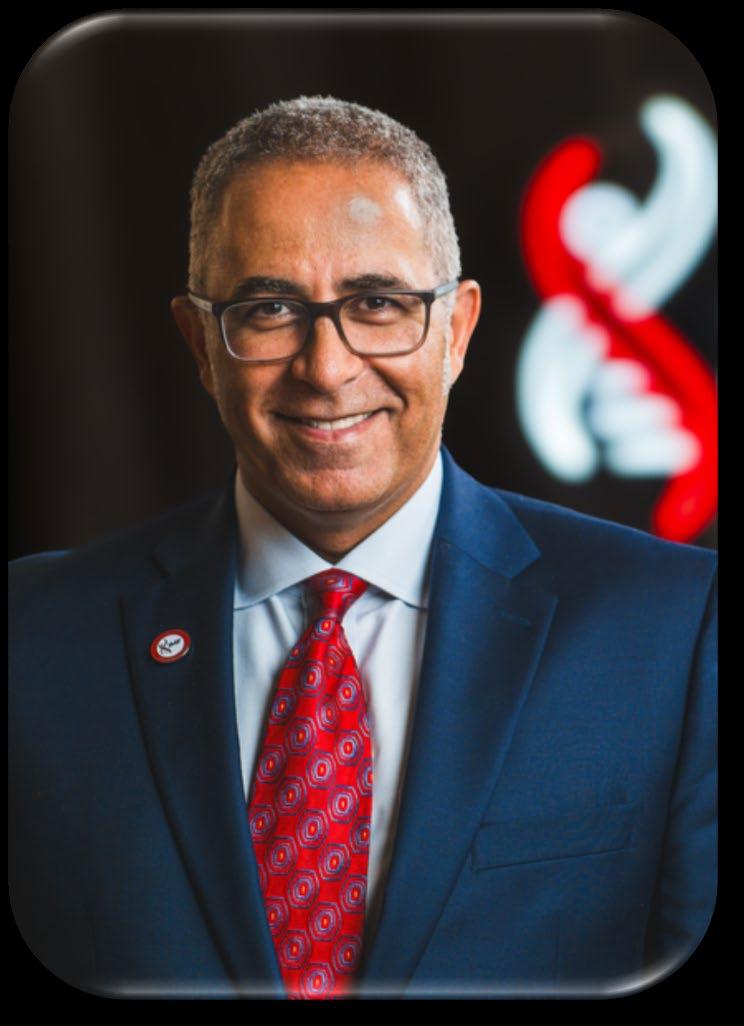
IMF Nurse Leadership Board Support Group Leader (Rochester, MN)
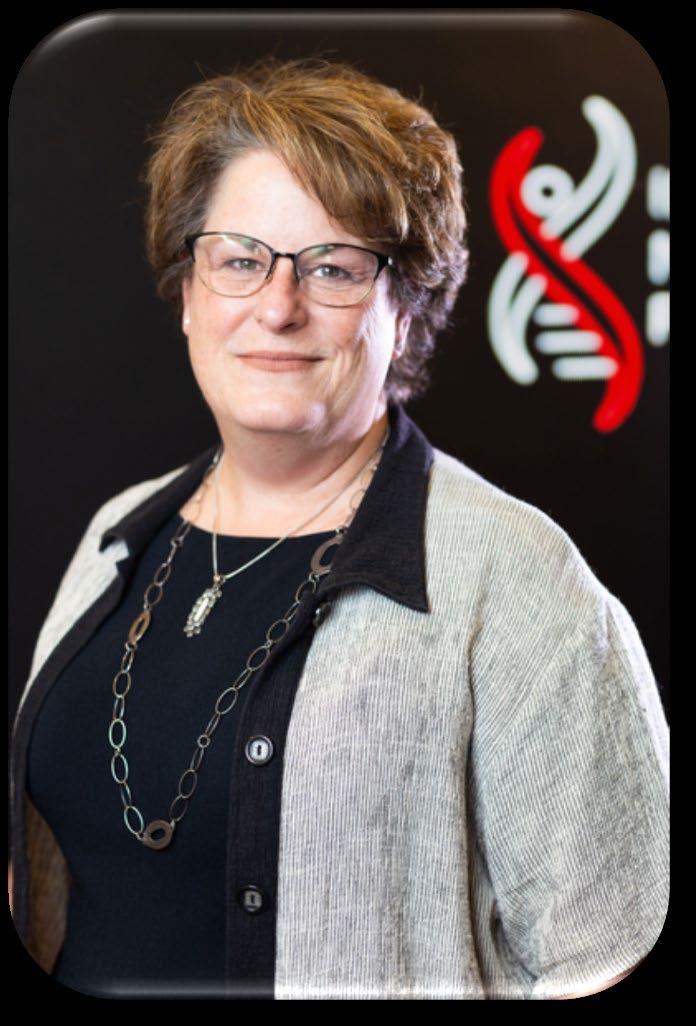

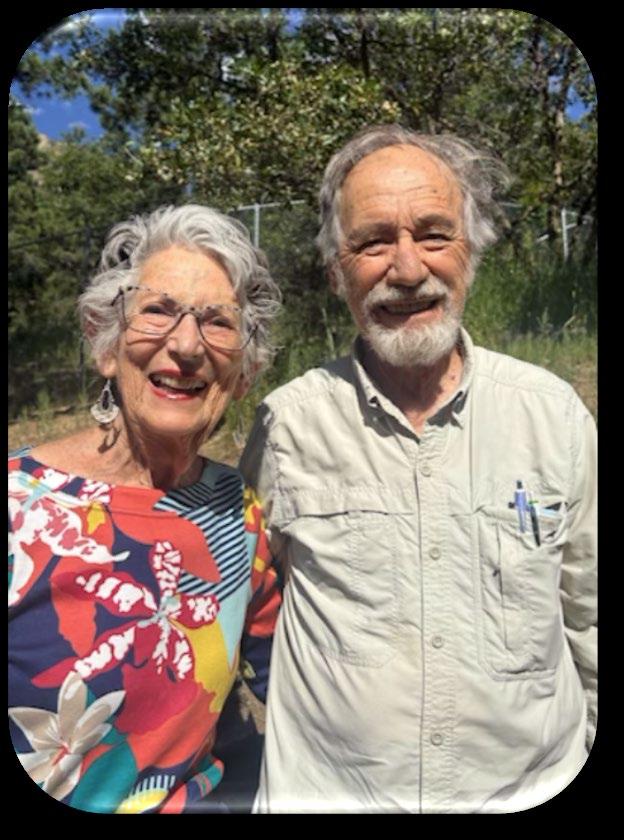
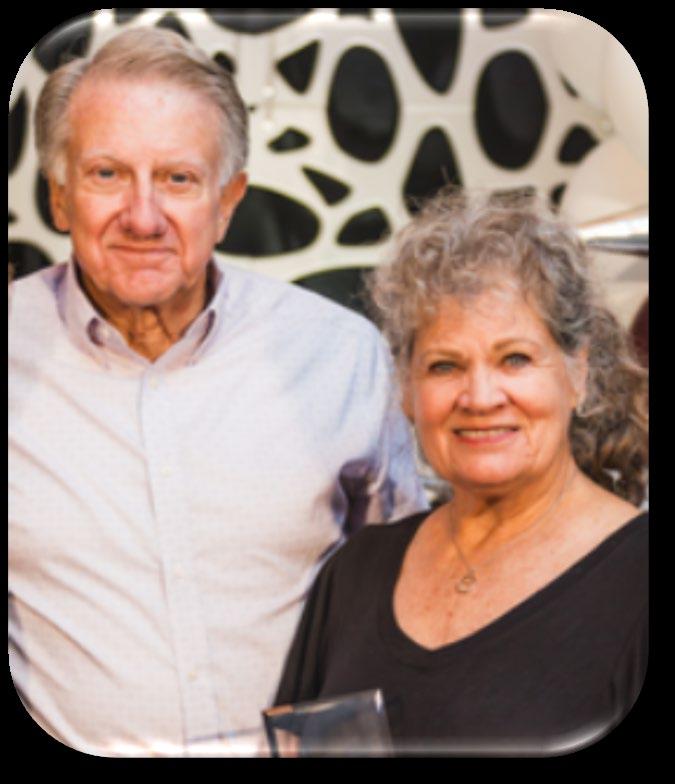
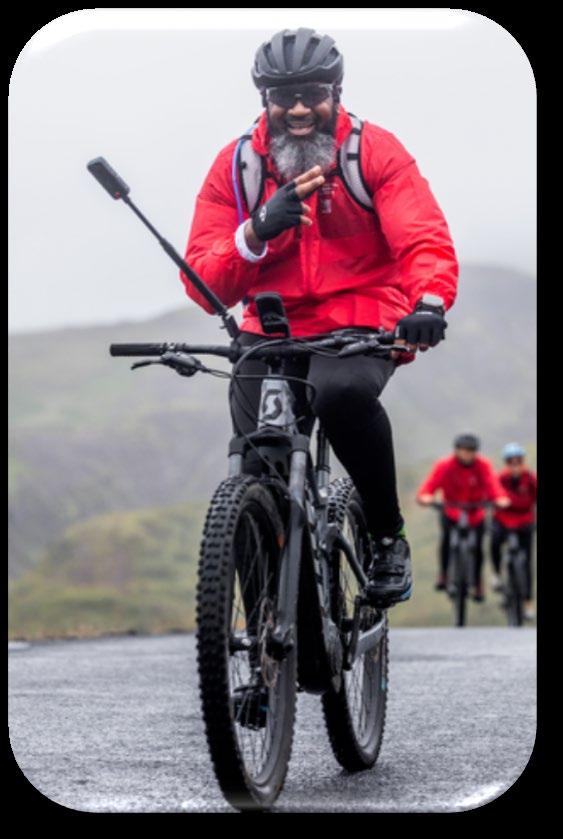


Katie Atkins, MSW, LCSW, OSW-C
IMF Associate Director, Support Groups
OncologySocialWorker|ResourceNavigator
SupportGroupLeader
Yara William, DrPH, MHA
IMF Associate Director, Support Groups
DoctorofPublicHealth|CommunityEngager
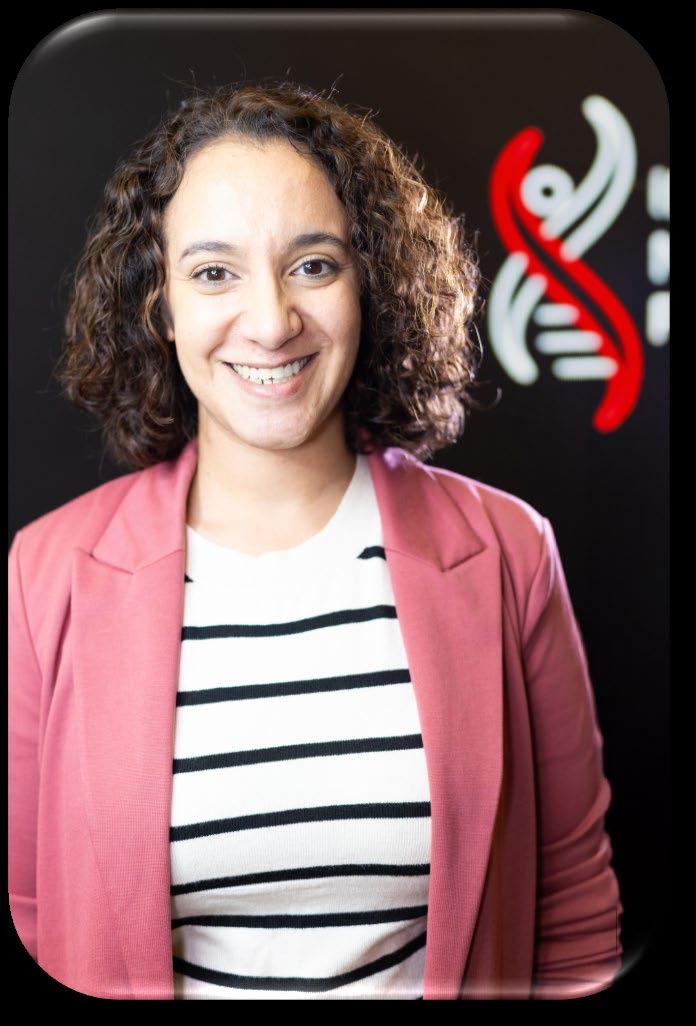

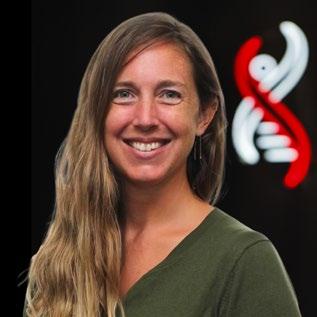

Southeastern Region

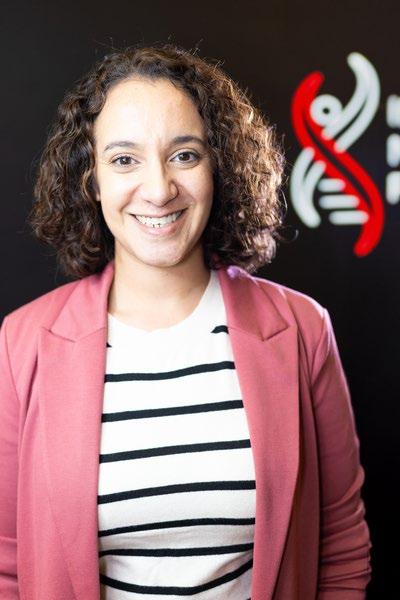

Western Region


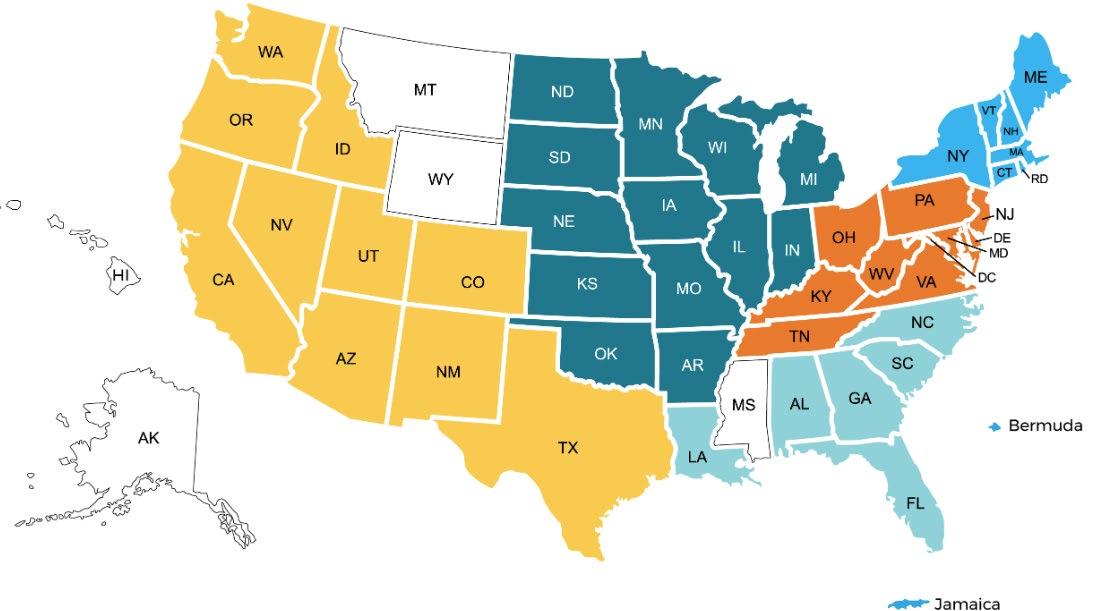

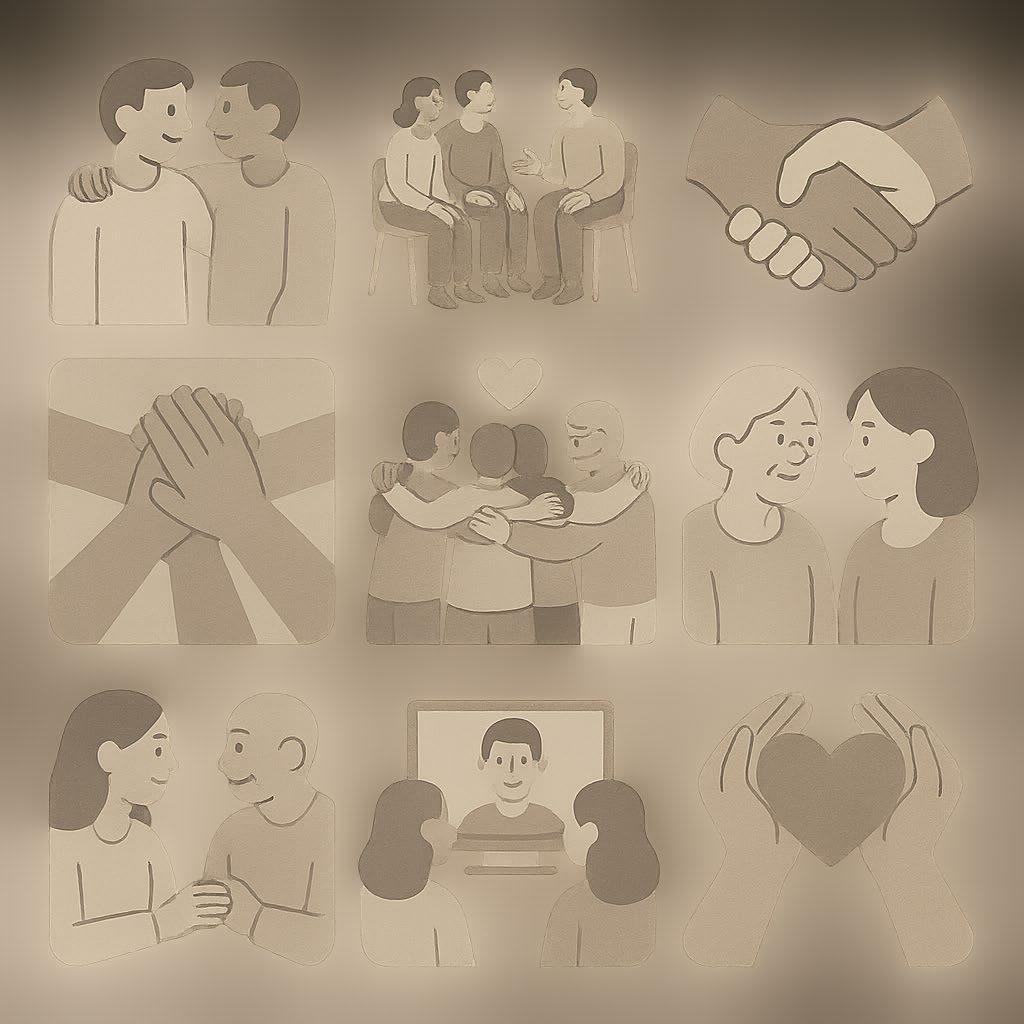
Educate | Engage | Empower

• Shared experience
• Knowledge exchange
• Encouragement, inspiration, hope
• Emotional wellbeing
• You are not alone
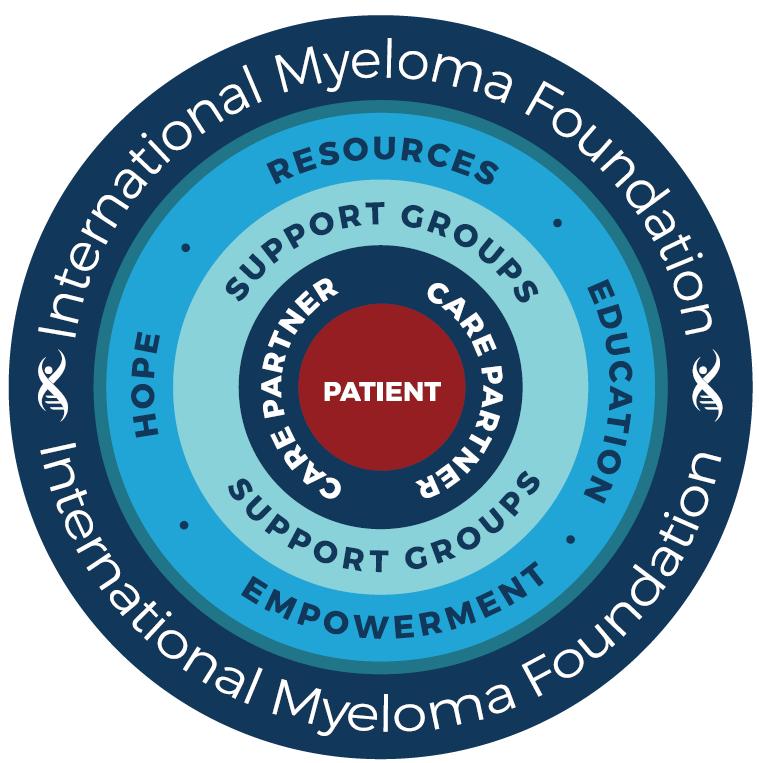

Should groups have guidelines? If so, what guidelines do you recommend?
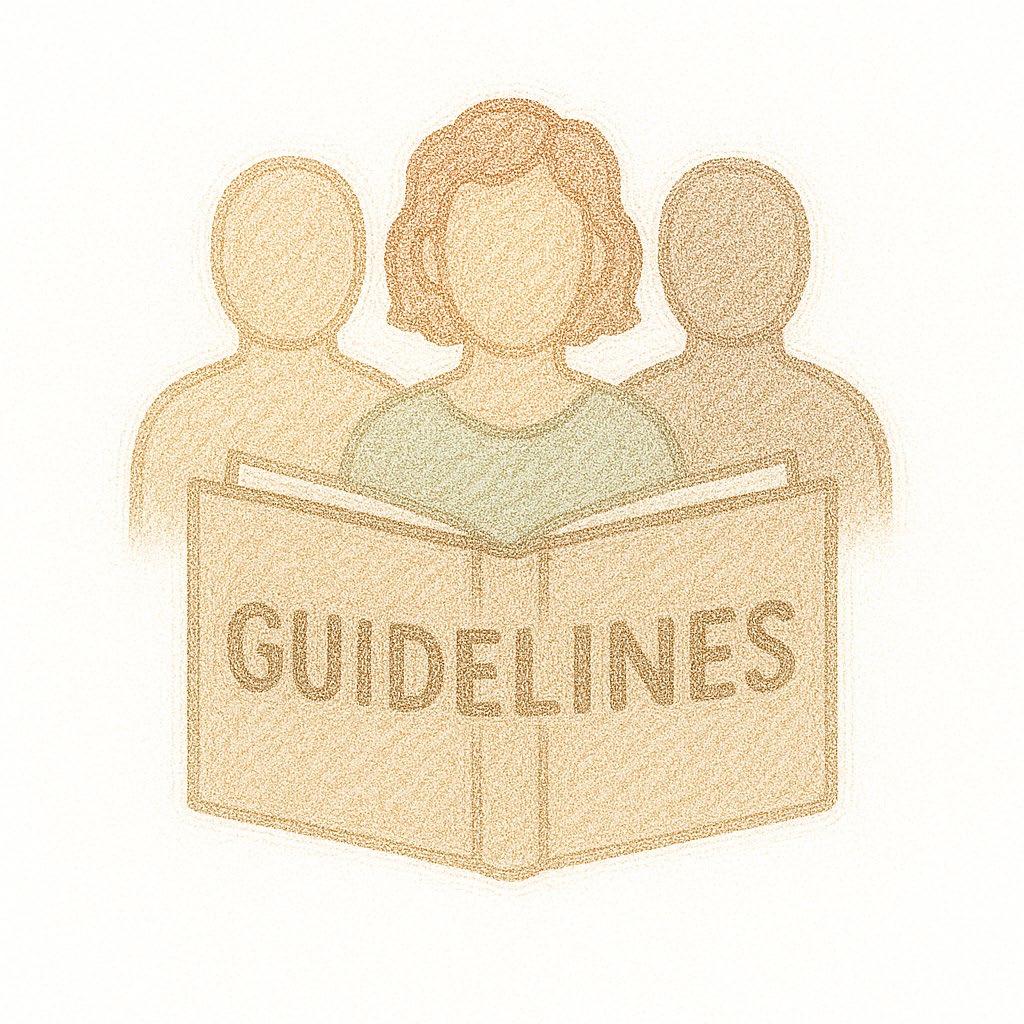

Respect everyone
Privacy and confidentiality
Use “I” statements
Support, don’t sell
Speak openly, but respectfully about providers
Be mindful of time
Address emotional well being
Follow the golden rule



• Shared responsibility
• IMF privacy recommendations
• Protect members’ personal information (whathappensingroup, staysingroup)
• Mutual consent
• Ask for permission
• Always BCC
• Community guidance
• Share with caution
• Future use matters
• Vet external requests
• Ask questions



• Step back & let members step in
• Ask open-ended questions
• Defer to healthcare teams
• Listen and reflect
• Share personally
• Practice active listening
• Connect beyond Myeloma
• Get creative!

• Whatdoesresiliencelooklikeforyou/Howdoyoufindyourresilience?
• Inwhatwayshasyourmyelomaexperiencechangedyou?
• Whatimportantrolesyouhaveplayedinyourlife?Whyarethey importanttoyou,andwhatdidyouaccomplishedinthoseroles?
• Whatbrings“life”toyourlife? Inotherwords,whatgivesmeaningto yourlife(purpose,value)?



• Validate emotions
• Embrace discomfort
• Support, don’t fix
• Encourage peer wisdom and ask about coping
• Avoid divisive topics
• Encourage respectful sharing
• Follow up privately, if needed
• Provide resources

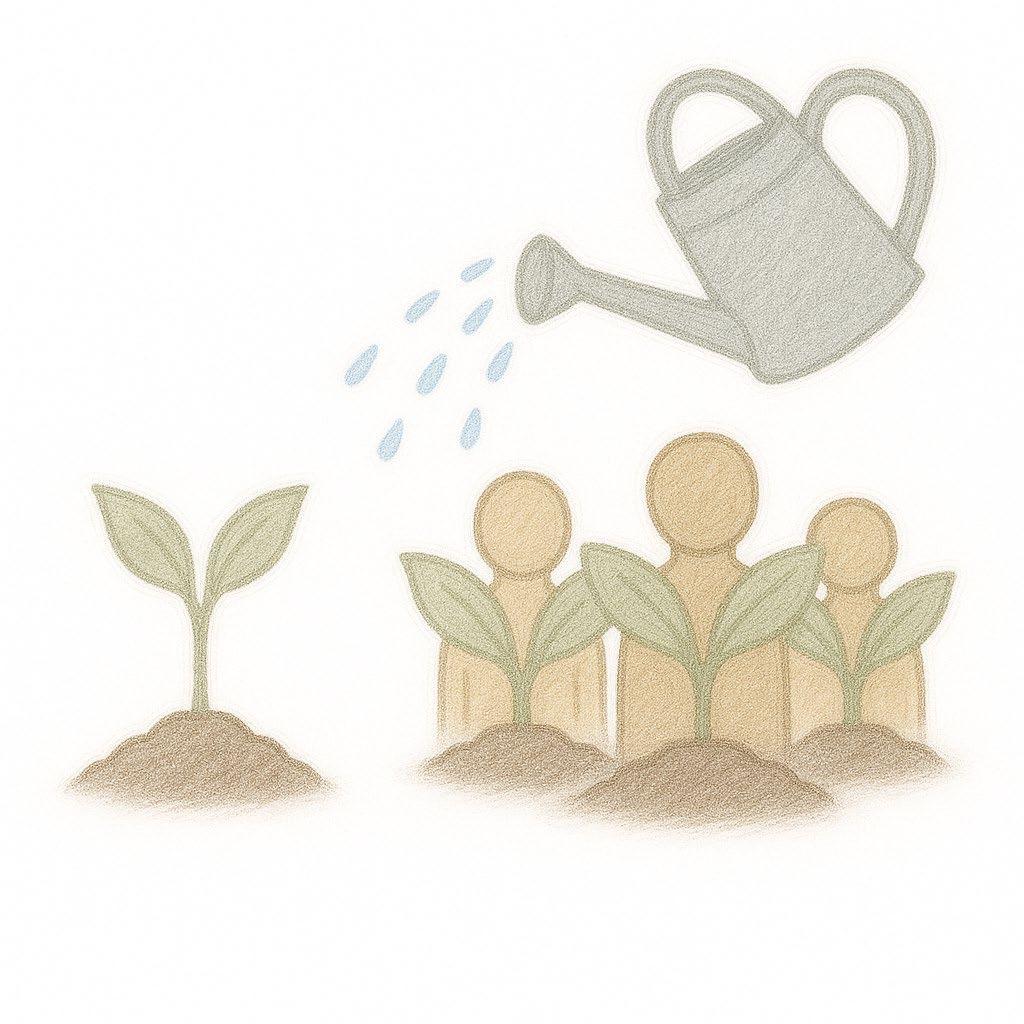
• Partner with US, your SGTeam director is here for you
• Gather and track feedback

• SupportGroupLeaderToolkit
• Get creative with outreach!
• Prevent burnout by sharing responsibility
• Establish healthy boundaries
• Create space so that those who want to be heard, are heard
• Adapt as the group evolves

“Butmaybeinsomesense,thekindestthingthatallofus candoistopursuesomethingradicallythatinsomewayis inservicetoothers,becauseyoujustdon'tknowhowit's goingtochangethetrajectoryofhumanlife.”






(Denver, CO; Denver Care Partners; Care Partners Only)
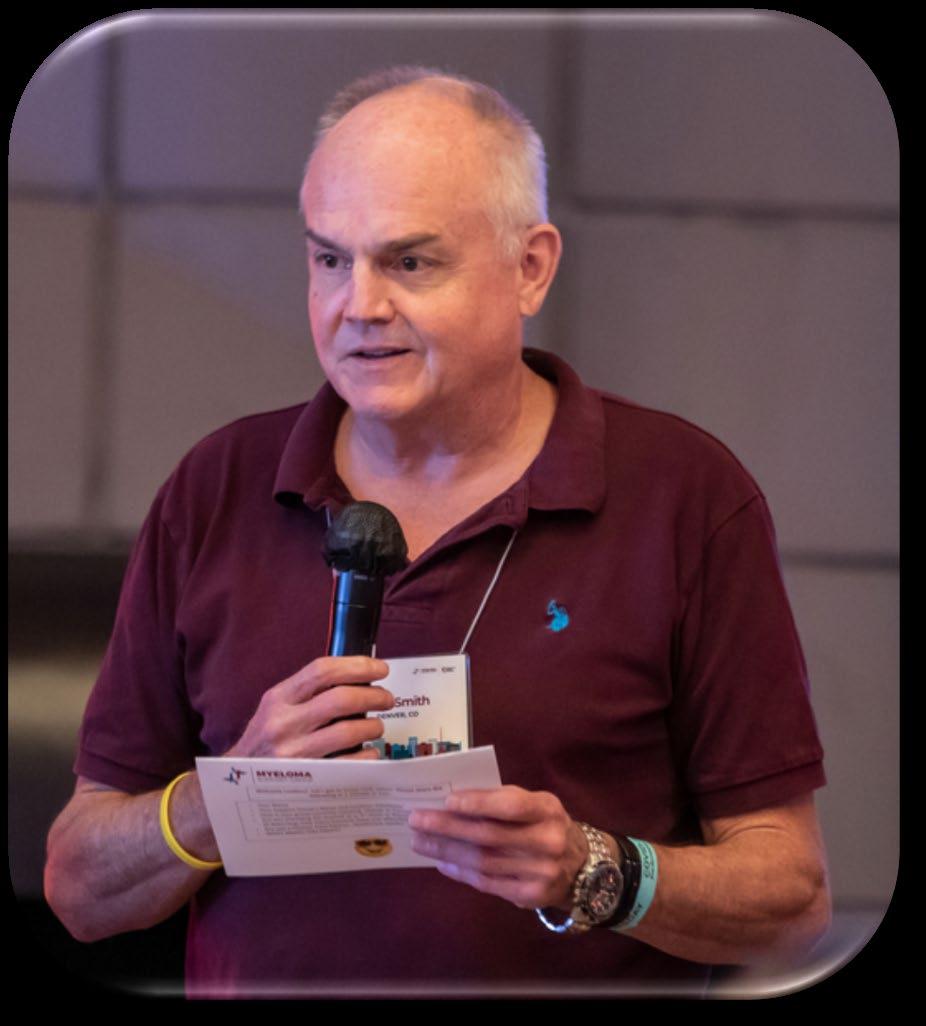

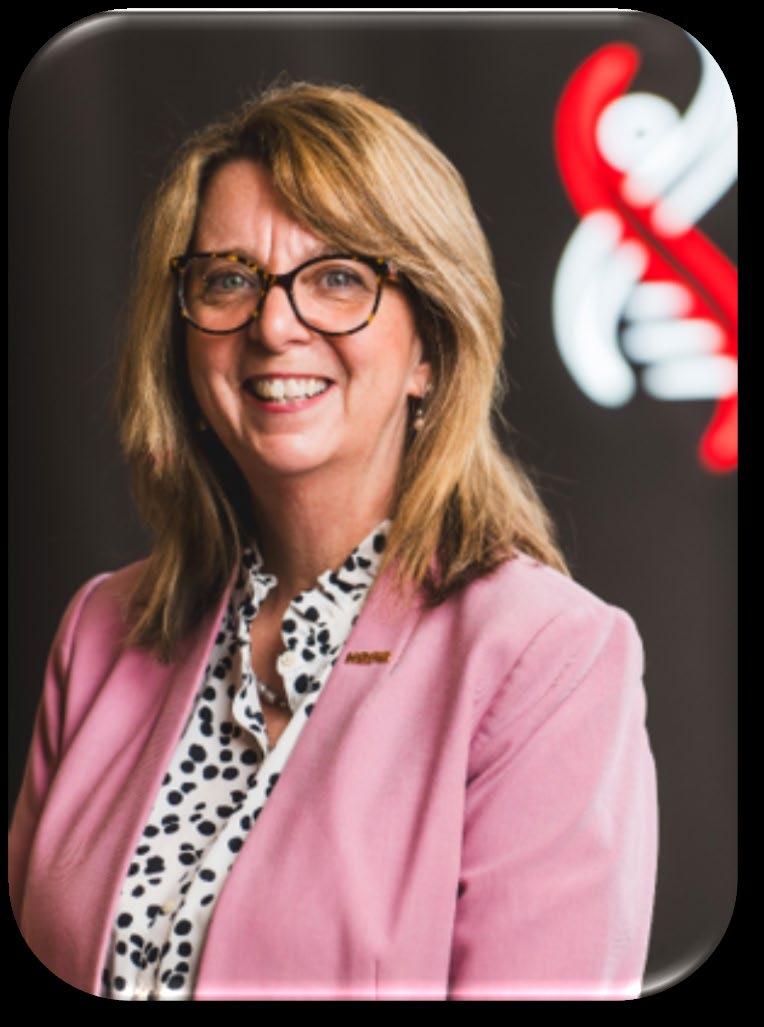




Reminder to wear your name badge that includes your dinner tickets throughout the program
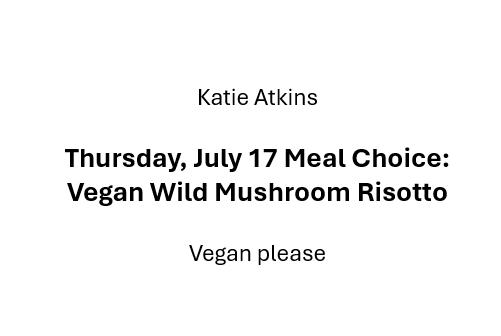
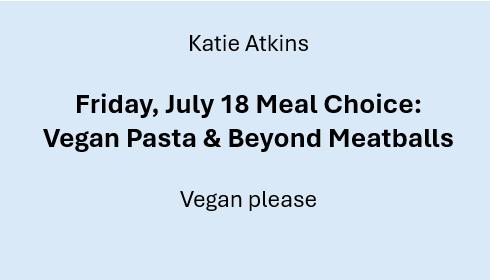
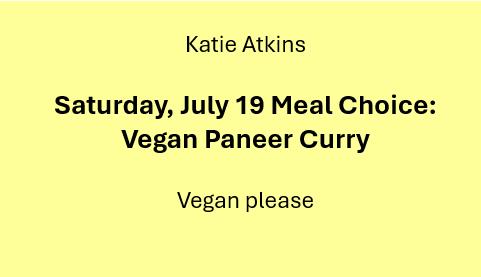






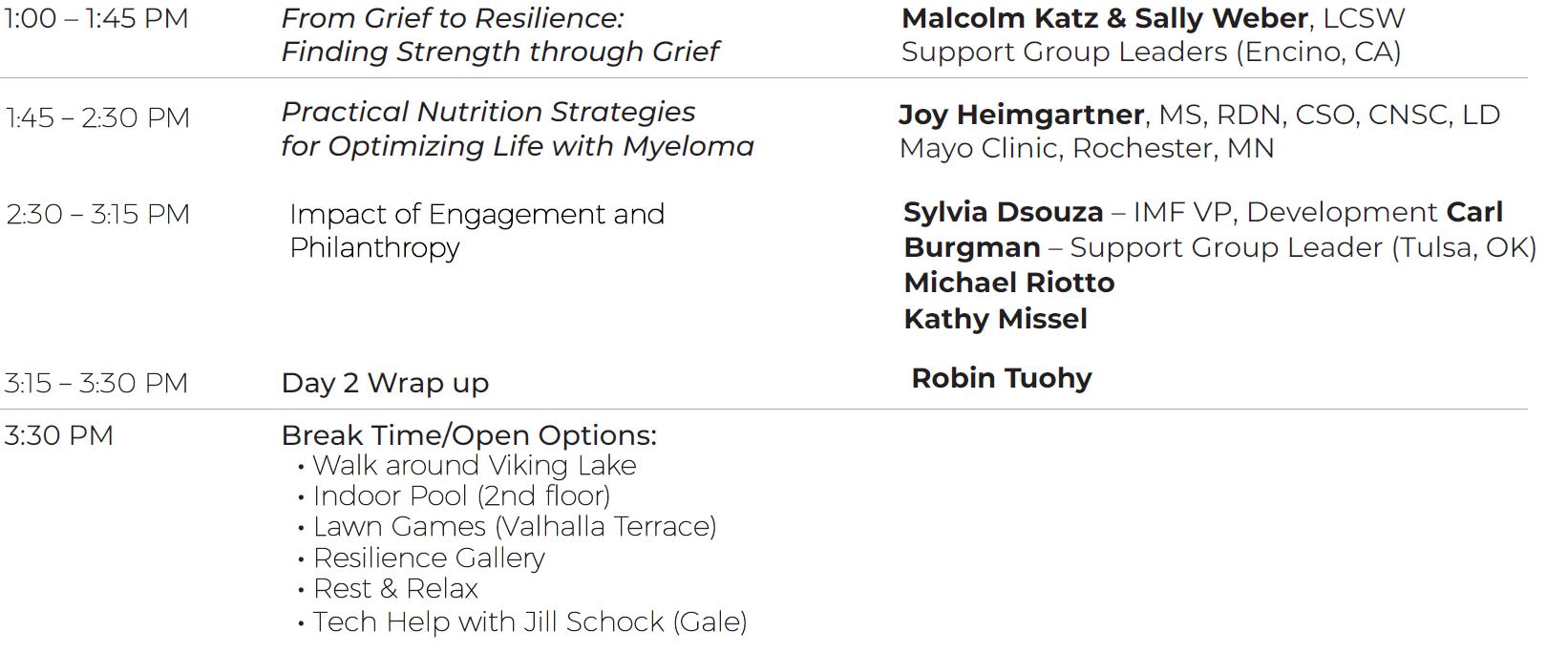

(San Fernando Valley, CA)
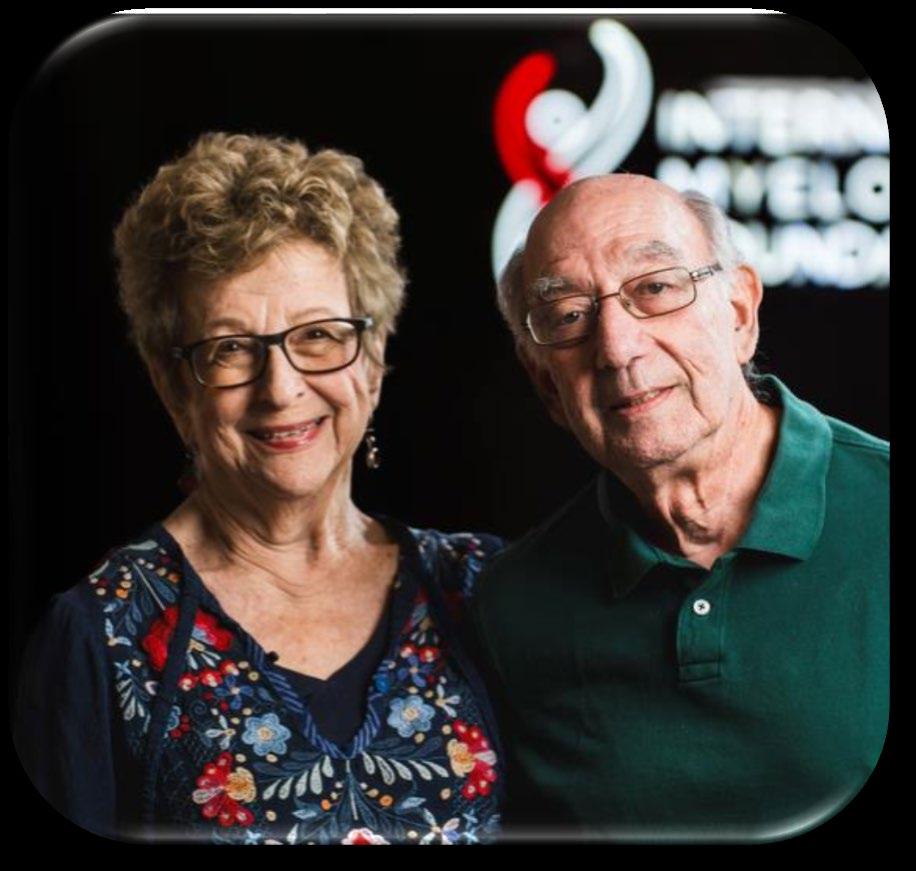
•
• Closing Comments



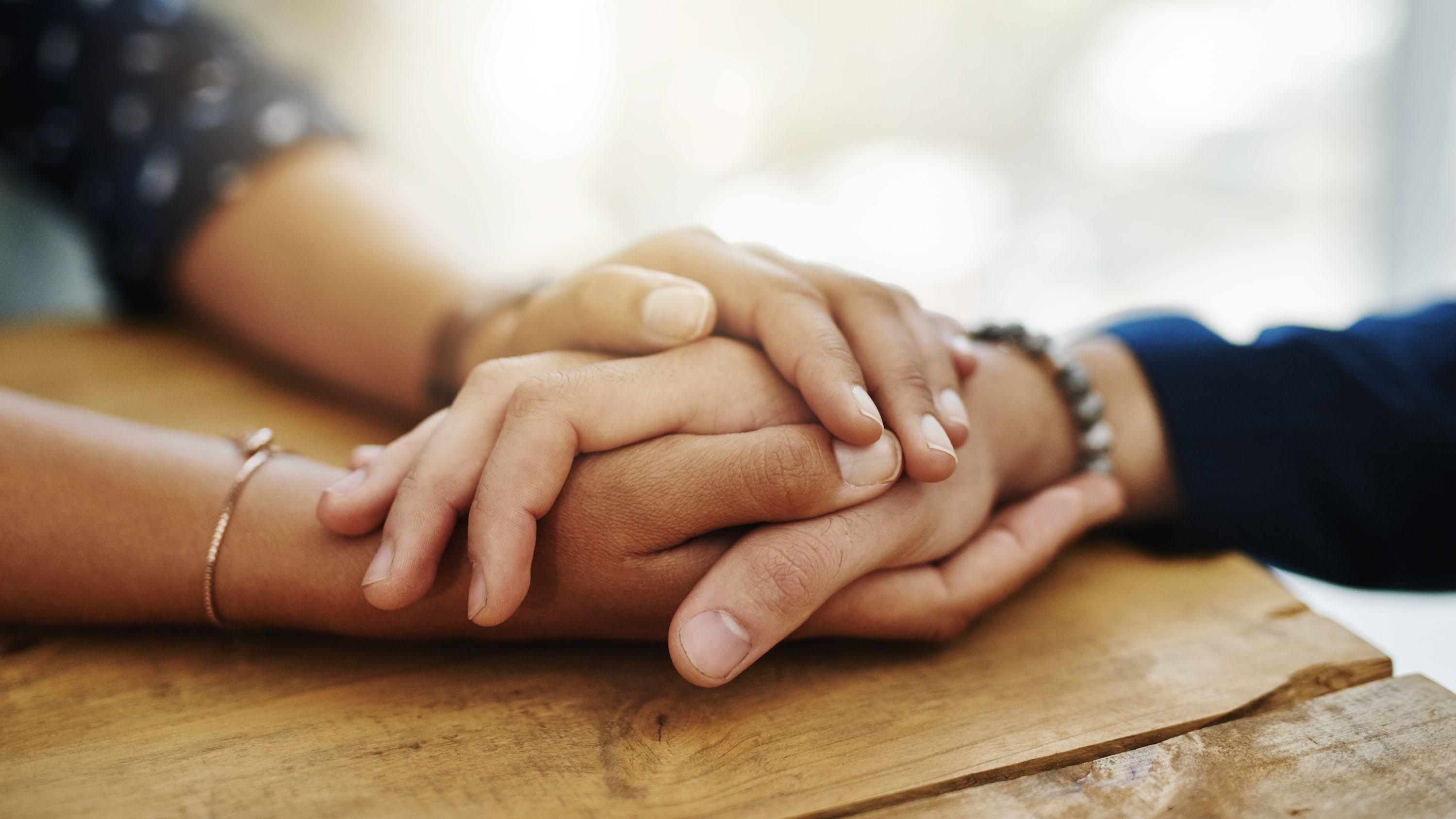


What helped you get through it?
What strength did you discover that surprised you?
Do you have any other questions?

THANK YOU!

Joy Heimgartner, MS, RDN,
Mayo Clinic, Rochester, MN
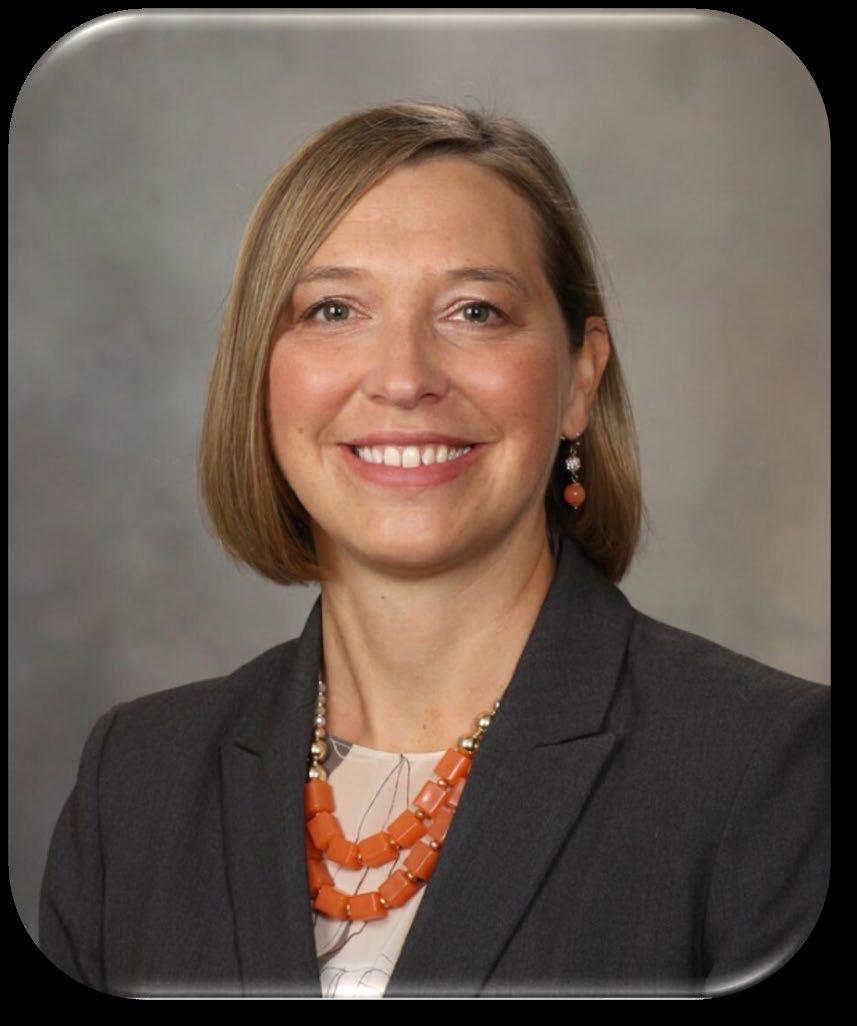
•
To help leaders appreciate nutrition goals across the continuum of MM care and learn practical strategies to guide group members
How dietitians think of care across the cancer continuum and how that is more complex in patients with MM
What are the most important nutrition concerns we have for patients with MM
The power of protein
The power of plants
• Continuum loop : prevention – active treatment – survivorship
Prevention & Survivorship
• Before diagnosis and after active treatment
• Similar nutrition recommendations
• Goal is to optimize long term health and reduce risk of other diseases or cancers





• Recommendations driven by treatment type and nutrition impact symptoms (NIS)
• Goal is to optimize the current body to withstand treatment and side effects to limit treatment interruptions, side effects and debility
recommendations may look very different during these phases…
And that is normal and expected - but can be confusing for patients.
• Before diagnosis and after active treatment
• Similar nutrition recommendations
• Goal is to optimize long term health and reduce risk of other diseases or cancers





• Recommendations driven by treatment type and nutrition impact symptoms (NIS)
• Goal is to optimize the current body to withstand treatment and side effects to limit treatment interruptions, side effects and debility
Tolerating treatment
• Fewer unplanned treatment breaks, dose reductions
• Limit treatment side effects
Maintaining physical functionality
• Improve energy levels
• Decrease lean muscle loss
Preventing longterm complications
• Protect heart health
• Optimize metabolic and endocrine health
• Bonus benefit: improve eligibility for future treatments
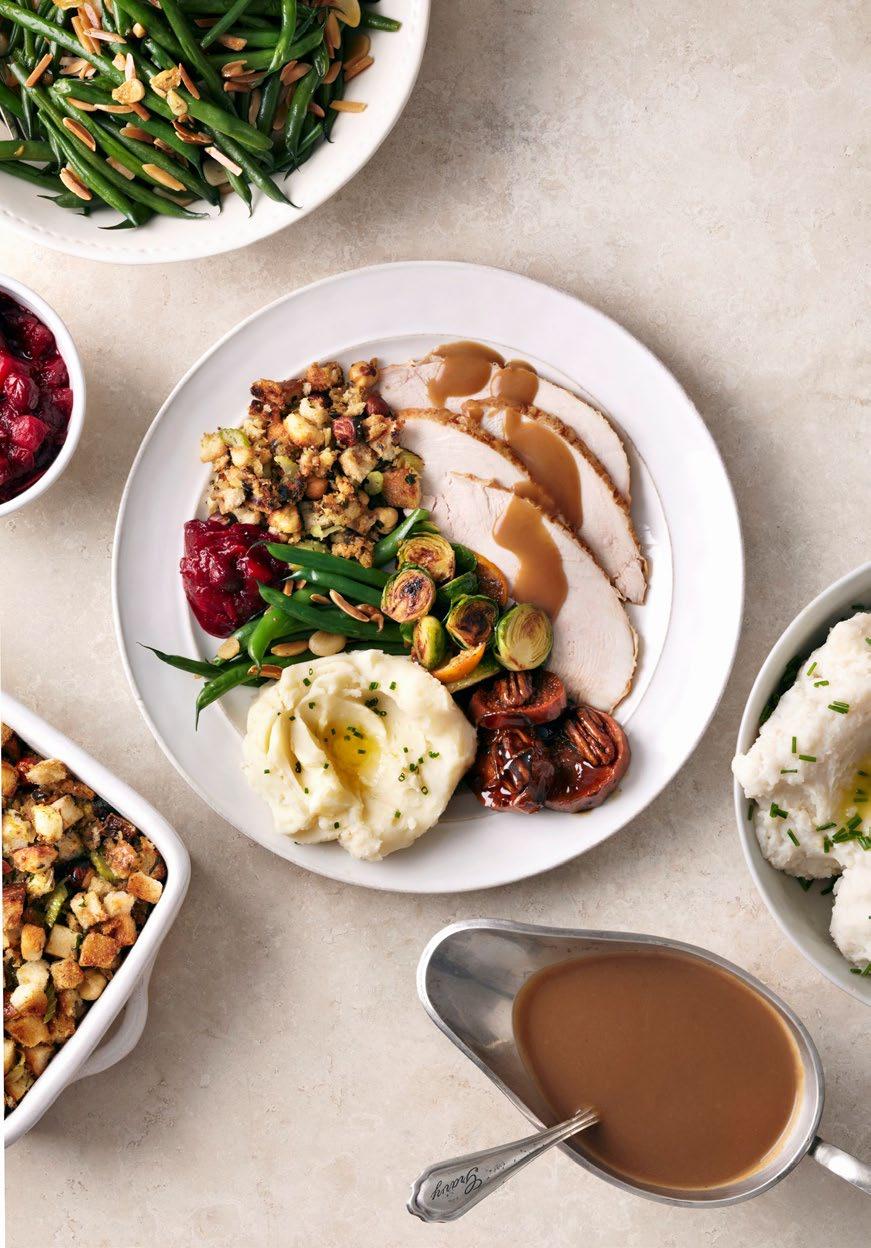
• Sarcopenia: loss of skeletal muscle mass, strength and function
• Age-related and disease-related
• Diminishes physical functioning
• Inhibits treatment tolerance
• Increases side effects
• Decreases quality of life

• https://youtu.be/pDSX_jaDCDM
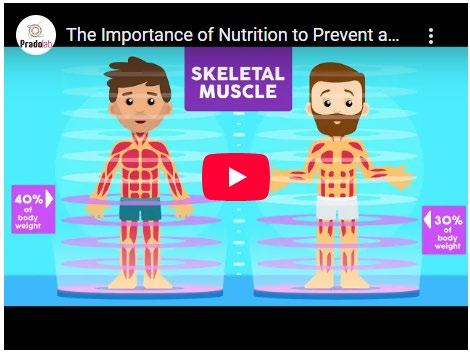
Inadequate protein and/or calories
Rapid weight loss (for any reason)
Inflammation
Medications
Insulin resistance
Physical inactivity
• Quantity matters*
• 1.2 to 1.5 g/kg body weight daily – up to 2 g/kg/day
• 150 lb (68 kg) person: 81-102 g/day
• 200 lb (91 kg) person: 109-136 g/day
• Quality matters
• 65% animal sources during active treatment
• Timing matters
• 4 to 6 feedings per day
*patients with severe kidney impairment should talk to their medical team about if they need to limit protein intake
of protein sources to support muscle anabolism in cancer: An expert group opinion. Clin Nutr. 2022 Jan;41(1):192-201. doi: 10.1016/j.clnu.2021.11.032. Epub 2021 Nov 29. PMID: 34891022.

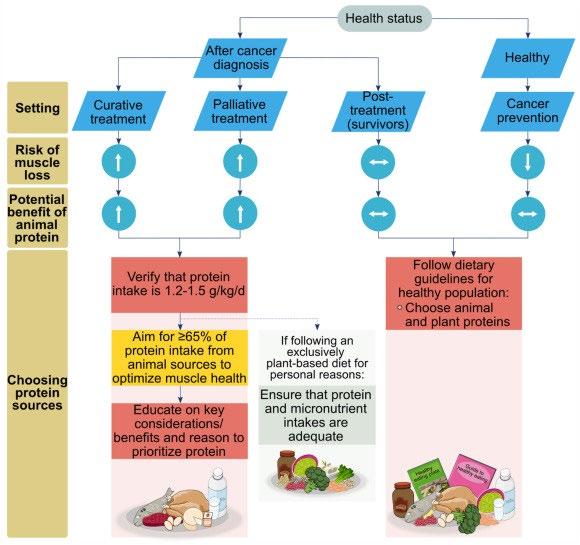
KL,
The importance of protein sources to support muscle anabolism in cancer: An expert group opinion. Clin Nutr. 2022 Jan;41(1):192-201. doi: 10.1016/j.clnu.2021.11.032. Epub 2021 Nov 29. PMID: 34891022.
• When NIS are well controlled, emphasize a plant-based diet that meets calorie and protein needs
• Plant foods provide:
• Fiber
• Vitamins and minerals
• Phytonutrients
• Pre-biotic fibers to feed a healthy gut microbiome
• Volume for satisfying hunger
• NUTRIVENTION studies
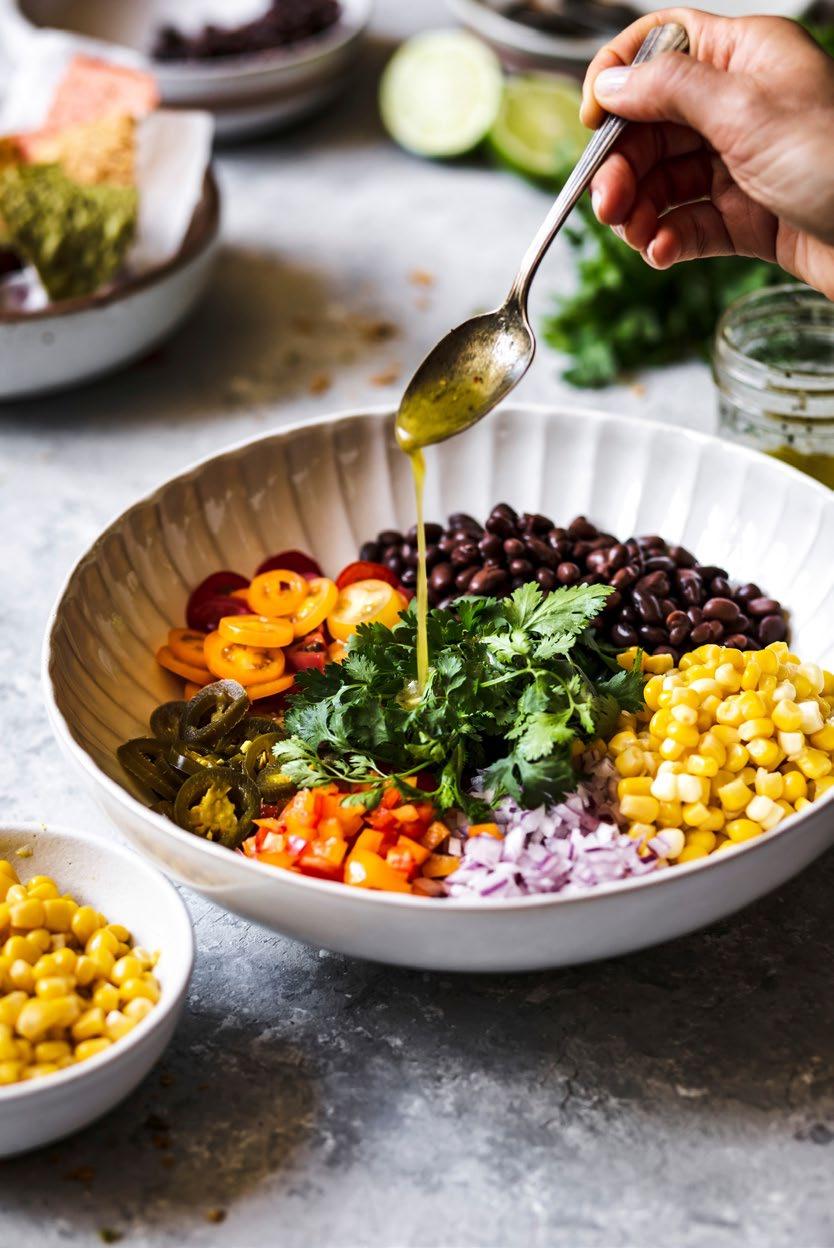
• 5 to 9 servings of vegetables and fruits daily
• Other plant foods: whole grains, nuts, seeds, beans
• Structured “diets” that can work as a starting point
• Mediterranean Diet
• Mayo Clinic Diet
• Whole Foods Plant Based Diet
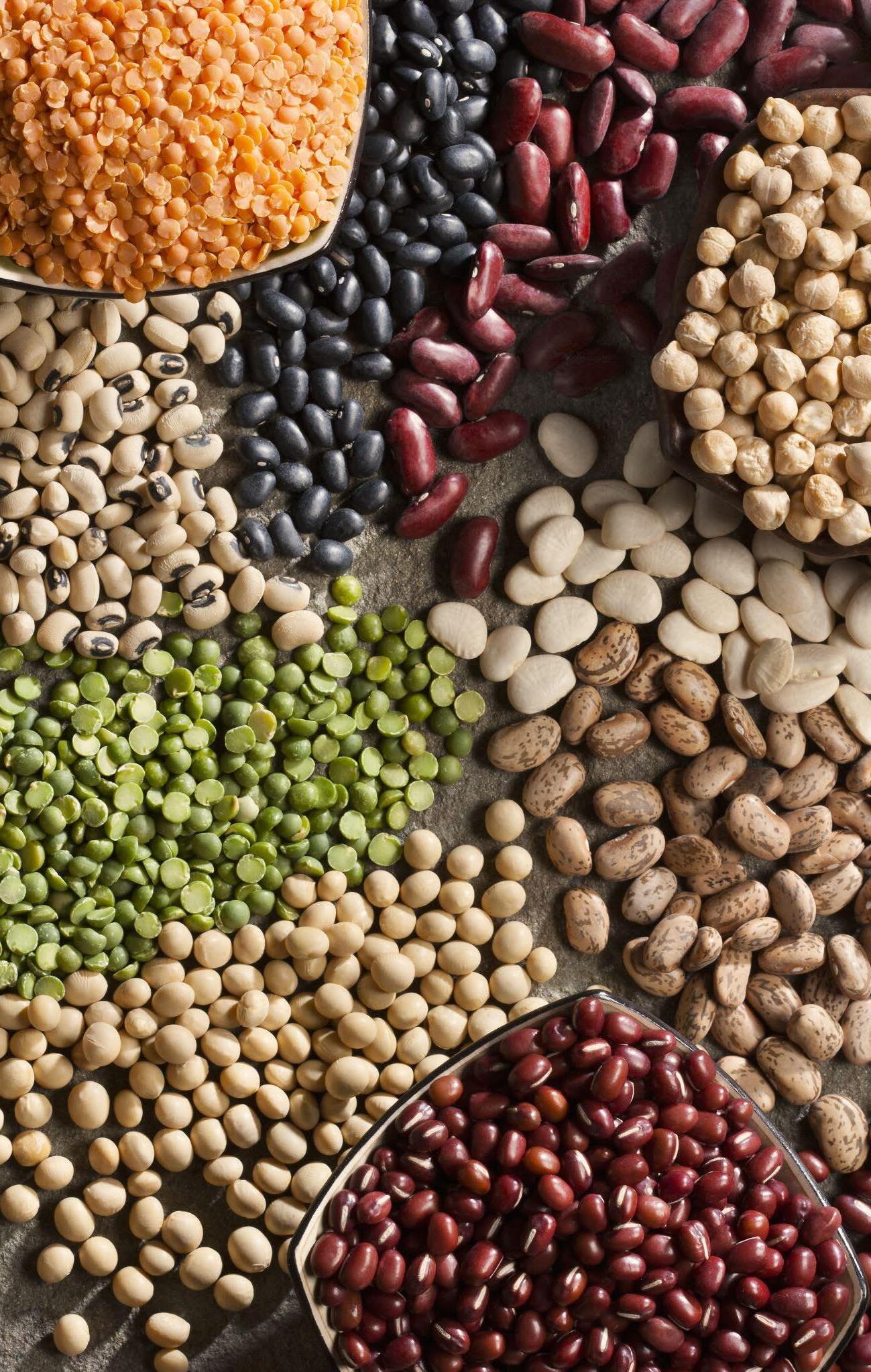
• Start small
• Focus on consistency not grand plans - “What can I do even on my worst day?”
• Create a supportive environment
• Built environment
• Social environment
• Be patient
• Just like MM, your habit change will be something you work on for the rest of your life
• Make it part of your identity
• Instead of “I’m not a vegetable eater” try “I am a person trying to diversify my gut microbes”
• Embrace the 80/20 rule
• Make the healthy choices MOST of the time, and over time you will improve
• It’s not about perfection, it’s about persistence: “All or something”
Heimgartner.joy@mayo.edu

Sylvia
IMF VP, Development
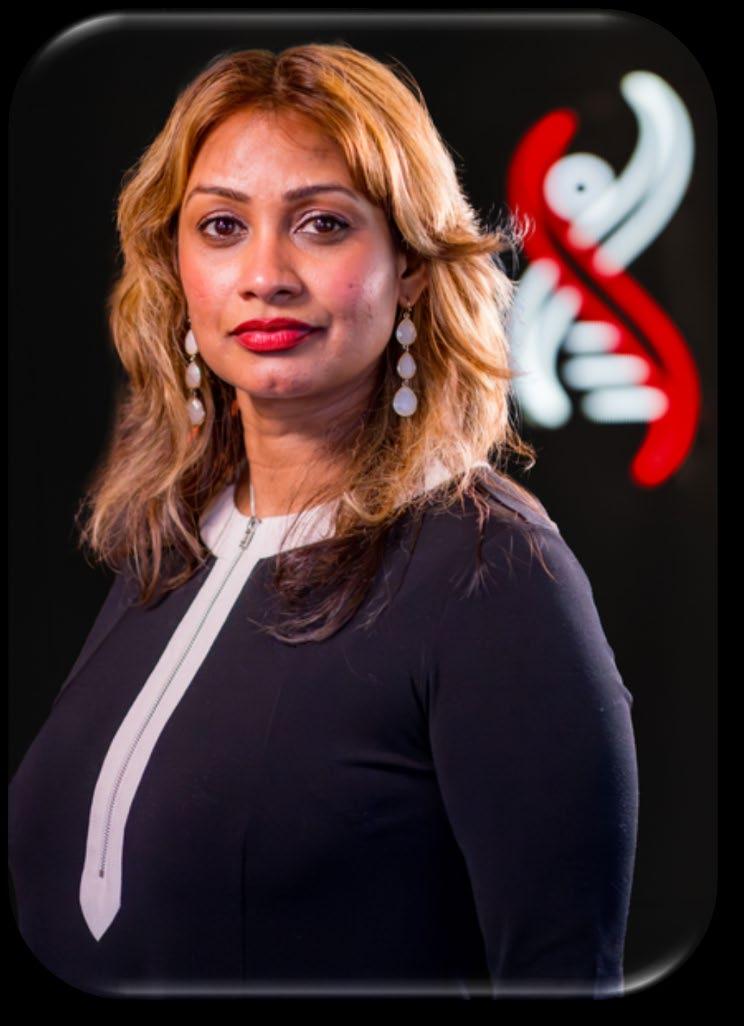
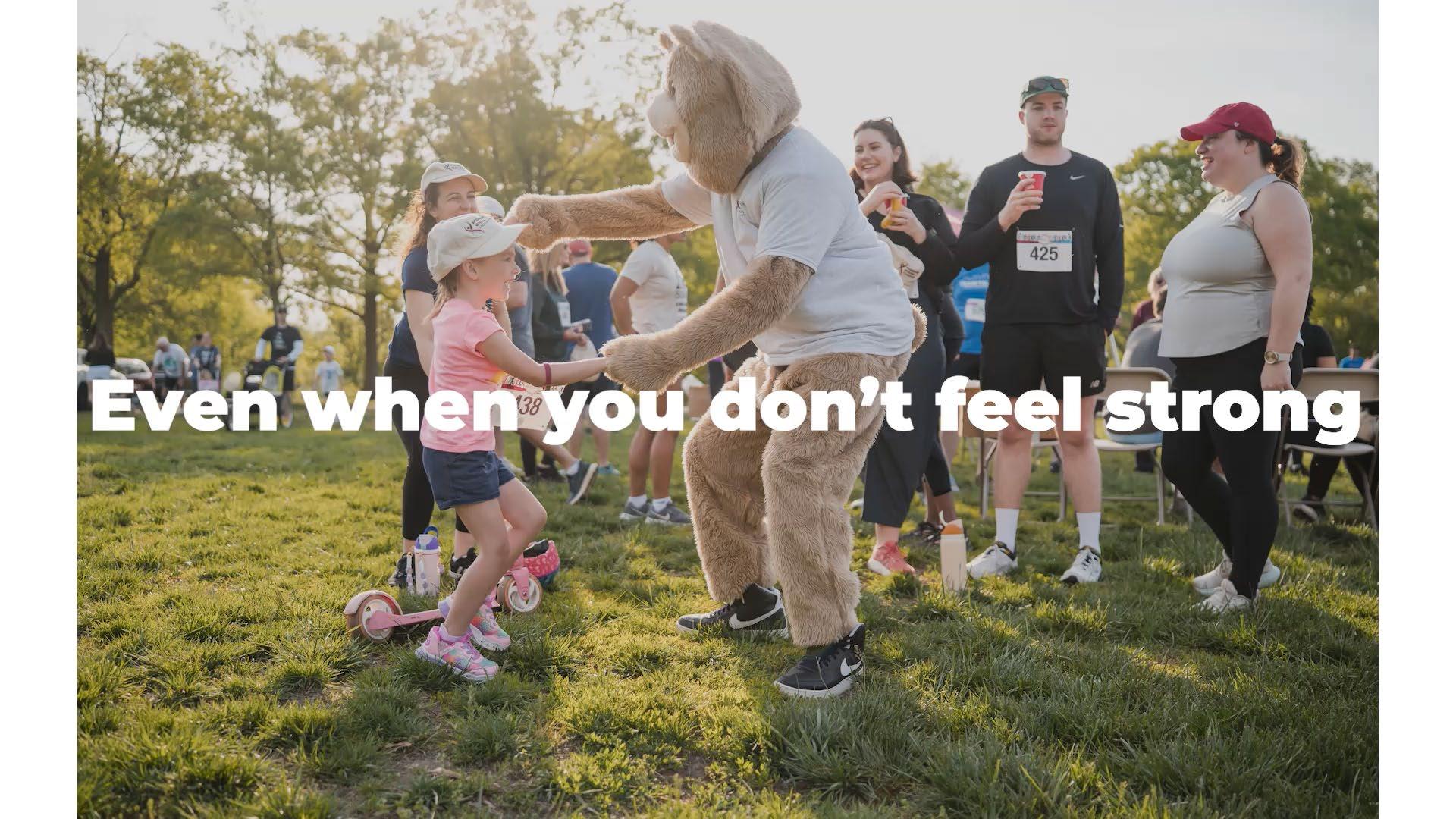

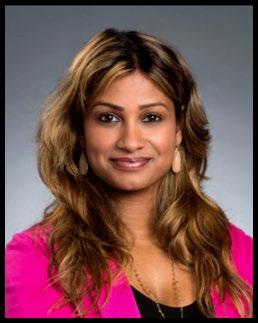


The term originates from the Ancient Greek word "philanthrōpía," meaning "love of humanity"
•Join your local support group/become a Support Group Leader
•Join our grassroots patient Advocacy program
•Volunteer your time at local races organized by the IMF to engage the community (local co-chairs)
•Engage on social media to connect with others affected by myeloma and spread awareness and empower patients with knowledge and resources.
•Offer your expertise as a speaker or panelist at events.
•Be a beta tester for various new tools and products and provide reviews &feedback.
•Make a philanthropic gift to support research, education, advocacy or patient support services and programs.


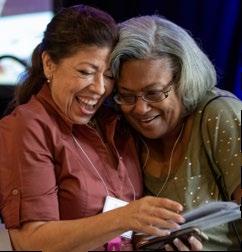
• Peer-to-Peer Fundraisers are created from YOUR ideas.
• Join or start an IMF P2P event. Engage family, friends, coworkers who support you. Let them show you that you are not alone.
Join the HOPE Society (Recurring Monthly & Annual Giving Program)
• Support IMF core programs, including educational events, publications, the toll-free InfoLine, and more.
• Get invited to Regional Salon Dinners in your area with IMF leadership and KOLs.
• Receive exclusive updates on research and trials fresh off the press.
• Help us cultivate the future in the quest to find a cure for myeloma by joining the International Myeloma Foundation's Hope Society.
• Let your passion guide your gift.
• Gifts can also be designated, unrestricted, expendable and/or an endowment
Giving – Join the Brian D. Novis Legacy Society
• Make a bequest (a gift from your estate)
• Include a provision in your will or living trust.

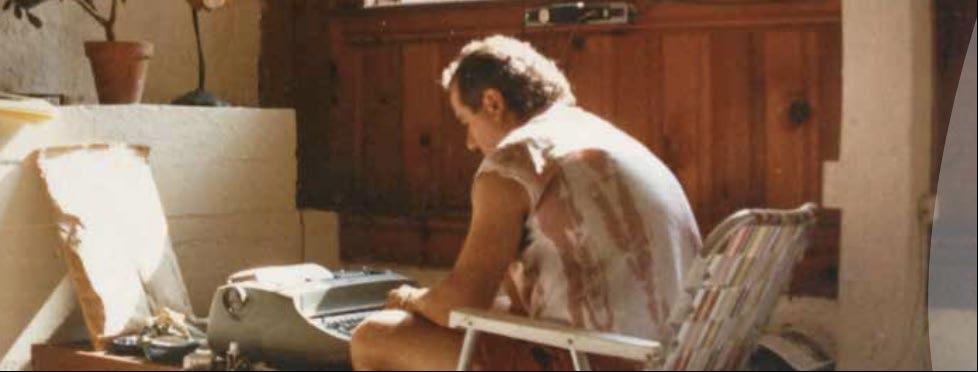
• Designate us as a beneficiary of a life insurance policy, or retirement plan (IRA, 401(k), or 403(b).
• Gain immediate tax benefits and potentially increase your income during your lifetime.
• Your organization can contribute a corporate gift or foundation grant.
• Provide seed funding that is necessary to accelerate the path to a cure.


Research: The IMF established a Scientific Advisory Board (SAB), a global dream team of 12 renowned myeloma experts, to guide the IMF’s research initiatives and identify areas for investment and expansion.
Support: The IMF celebrated the 25th anniversary of the Support Group Leaders Summit in San Antonio, TX with 98 Support Group Leaders in attendance, highlighting the theme of ‘Celebrating People, Empowering CoMMunities, Embracing Hope.’
Education: Through our M-Power® Initiative, 12 scholars from HBCUs presented research posters at the National Medical Association Annual Meeting in New York City, four of which were accepted for presentation at the American Society of Hematology (ASH) Annual Meeting.
Advocacy: We launched the IMF Advocacy Master Class to train and empower a new cohort of patient advocates to engage directly with policymakers to advance key priorities including oral parity, expanded telehealth access, and increased research funding.

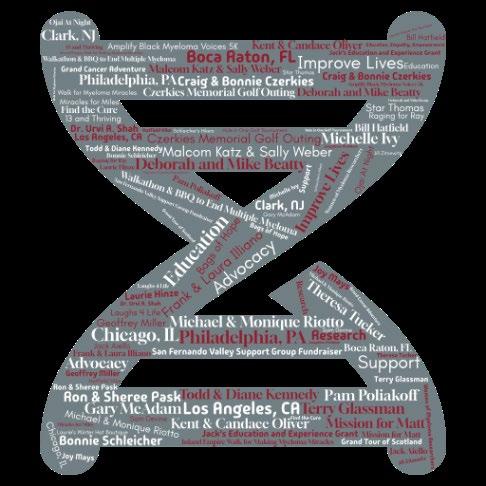

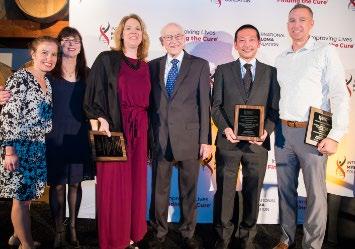

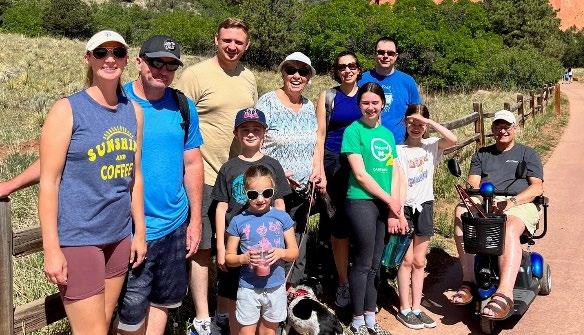
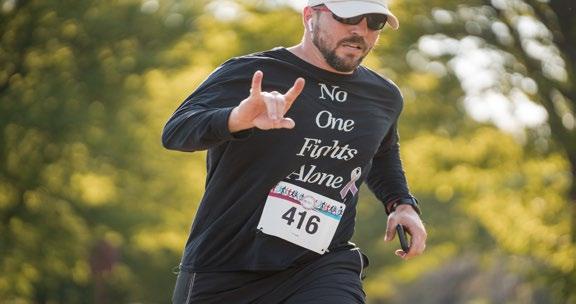


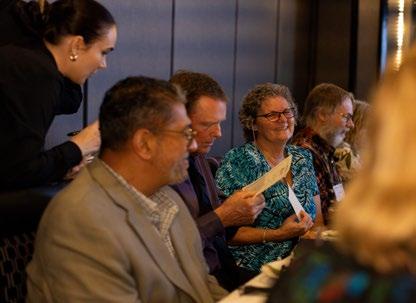
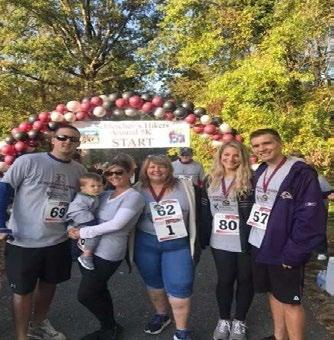
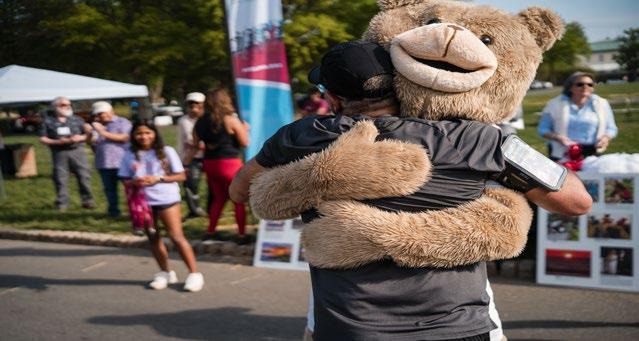



Monthly and annual gifts sustain the IMF's core programs and services.
We've received approximately 5,500 monthly and annual gifts in FY2025.*
The average monthly/annual gift amount is $228.61, higher than the industry average for organizations of similar size.**
Major and transformational gifts make up 38% of our fundraising revenue (gifts that are $25K and above).

We've received approximately 35 major and transformational gifts in FY2025
The second year of the Iceland Cycling Expedition is projected to raise >$1 million!

Carl (and Jenny) Burgman (Patient; Support Group Leader – Tulsa, OK)
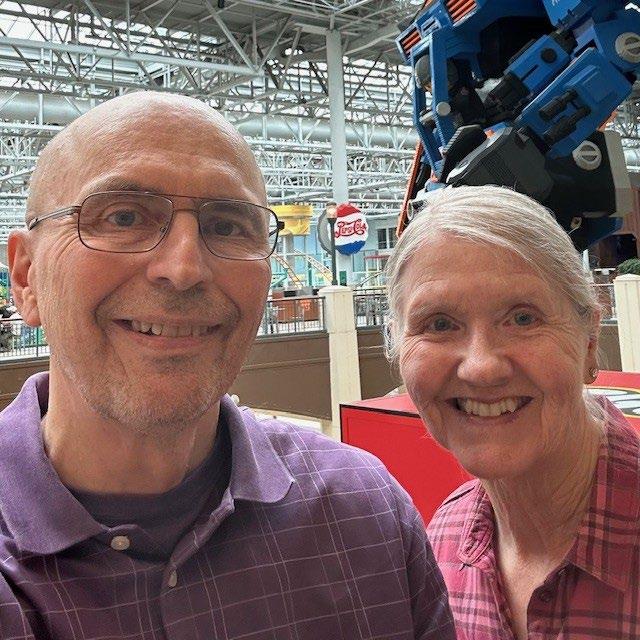
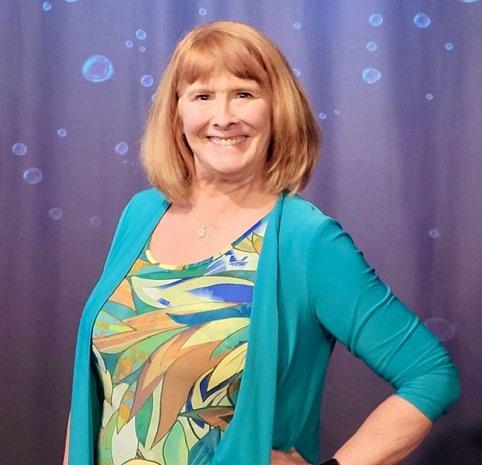
Kathy Missel (Patient; Support Group Leader – Sebring, FL)
Michael Riotto
(Patient; Support Group Leader – Philadelphia, PA)
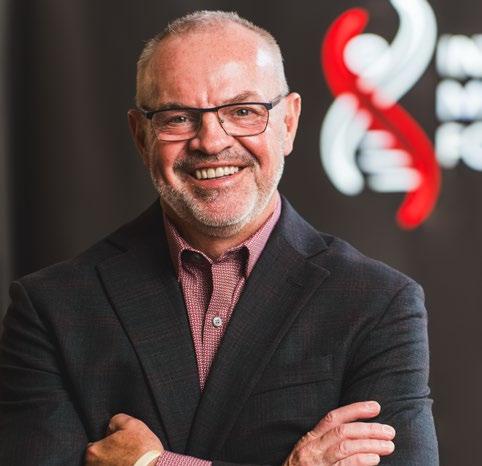


3:30PM – Open Options
• Walk around Viking Lake
• Indoor Pool (2nd Floor)
• Lawn Games (Valhalla Terrace)
• Resilience Gallery
• Rest & Relax
• Tech Help with Jill Schock (Gale)
5:30PM – Networking & Reception (Valhalla Terrace & Prefunction North)
6:45PM Sharp – Group Photo (Prefunction Center)
7:00PM – Dinner (Valhalla Ballroom)

6:30 – 7:45AM Tomorrow – Breakfast (Prefunction North)
Please use this QR code for Saturday’s







